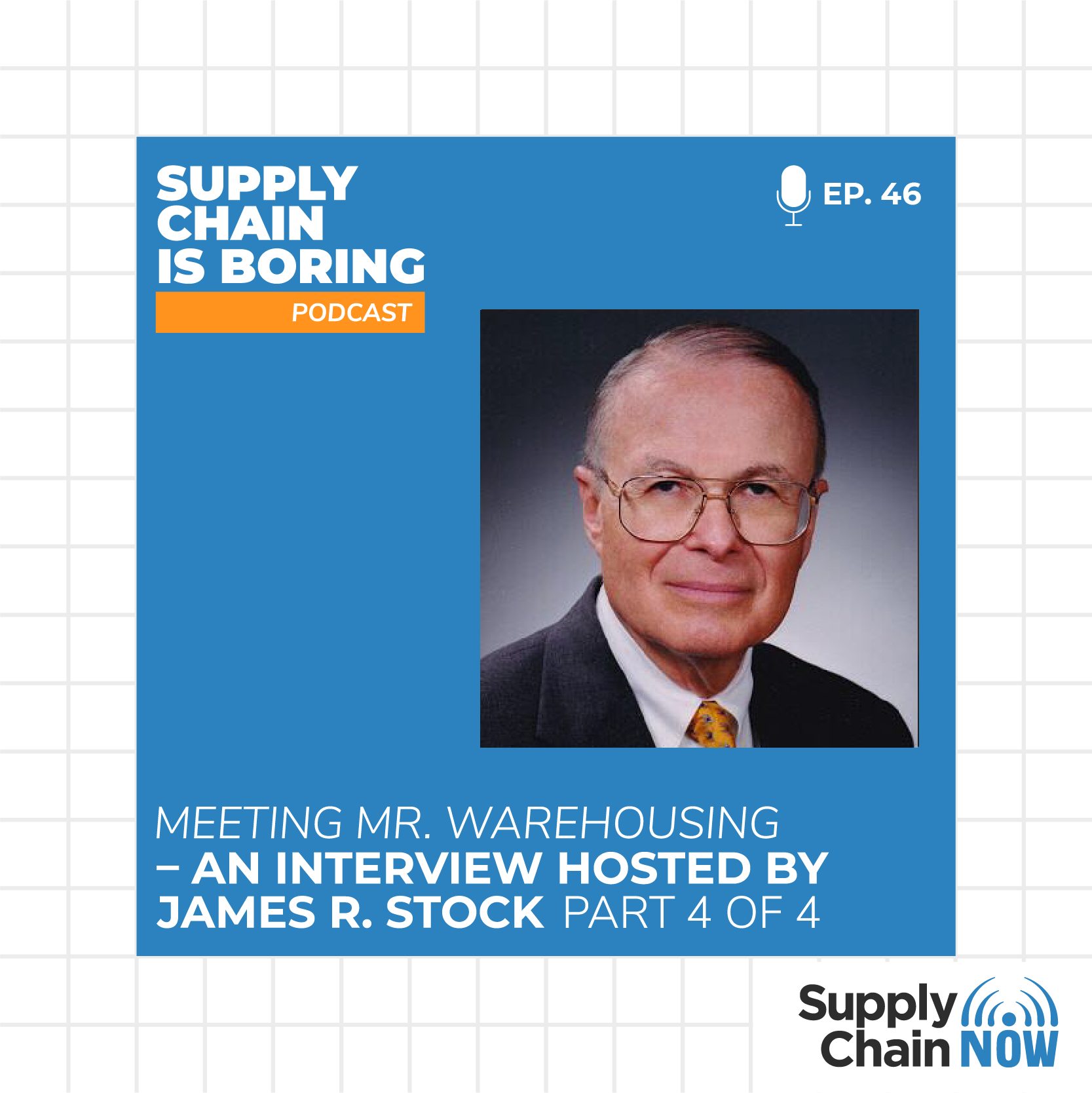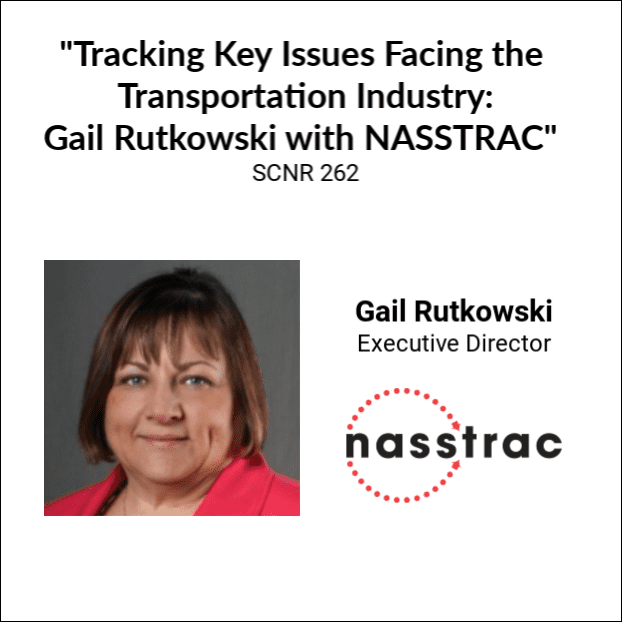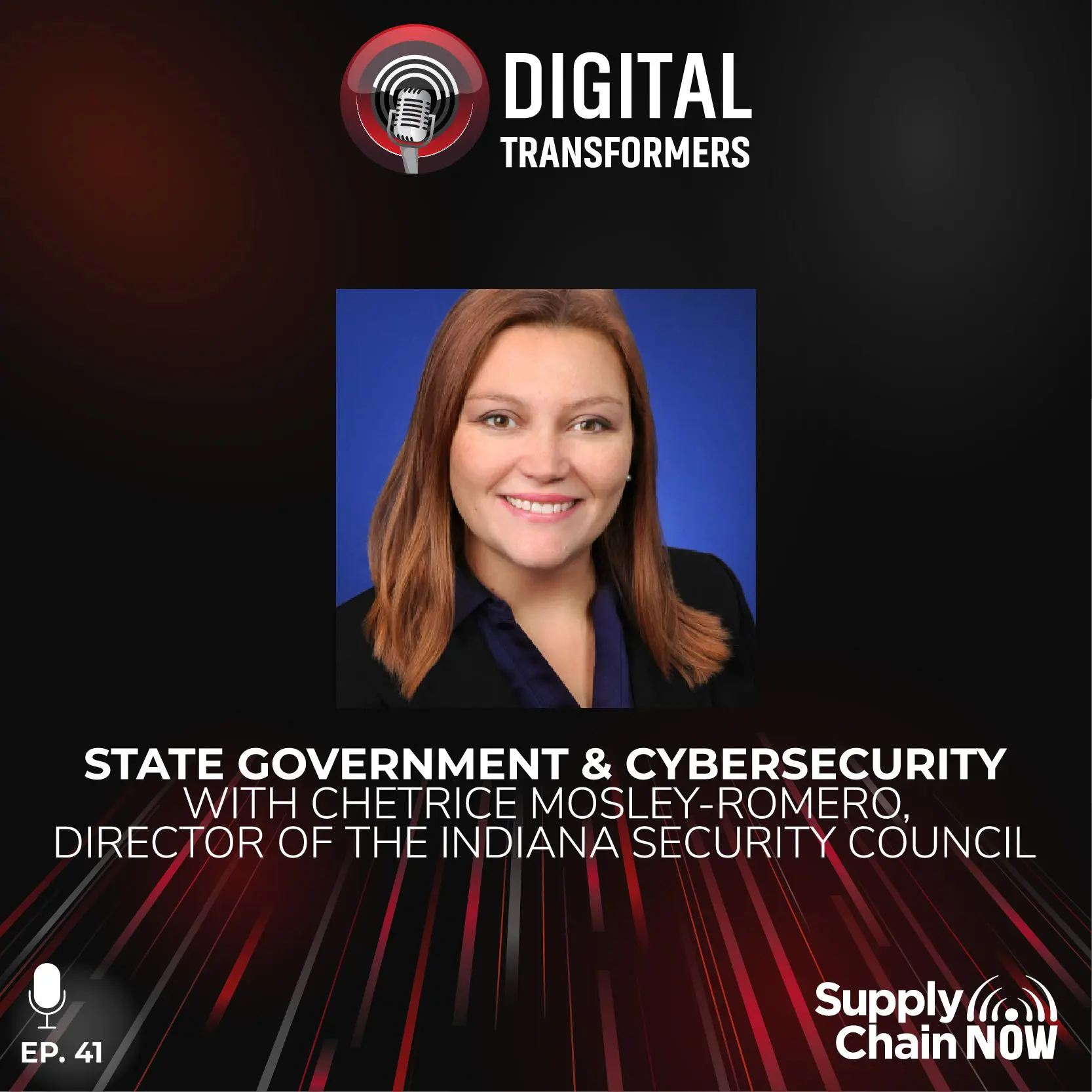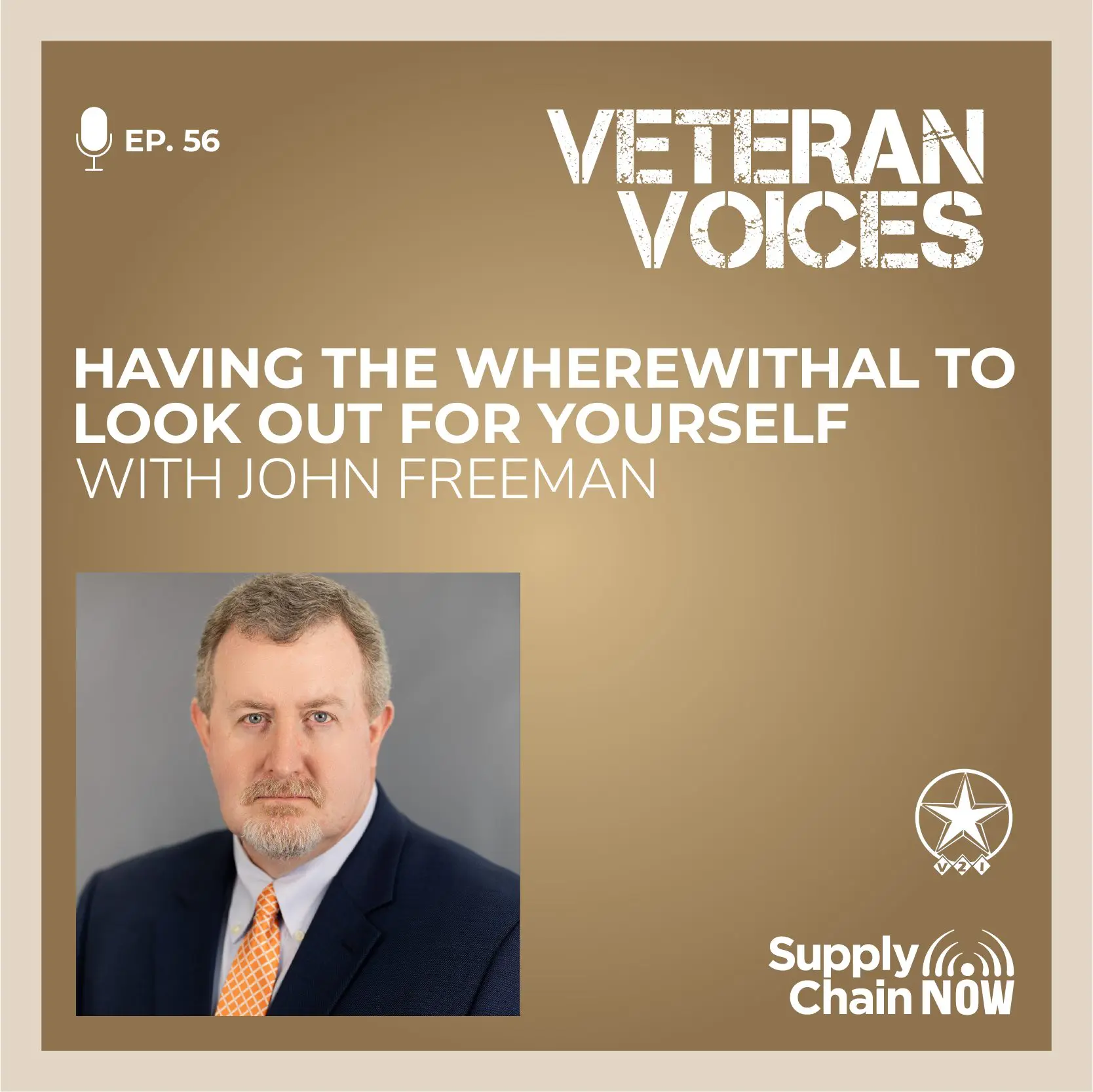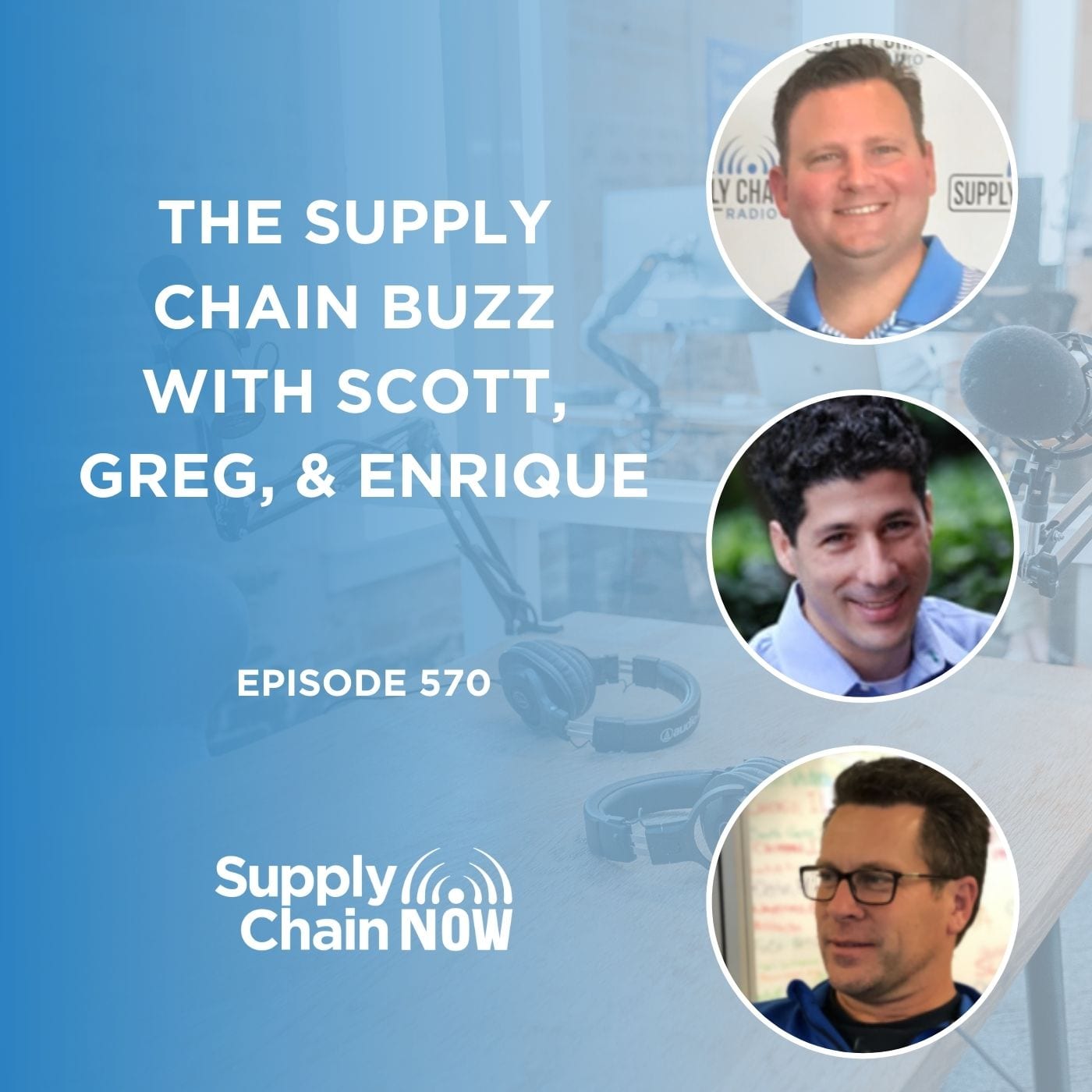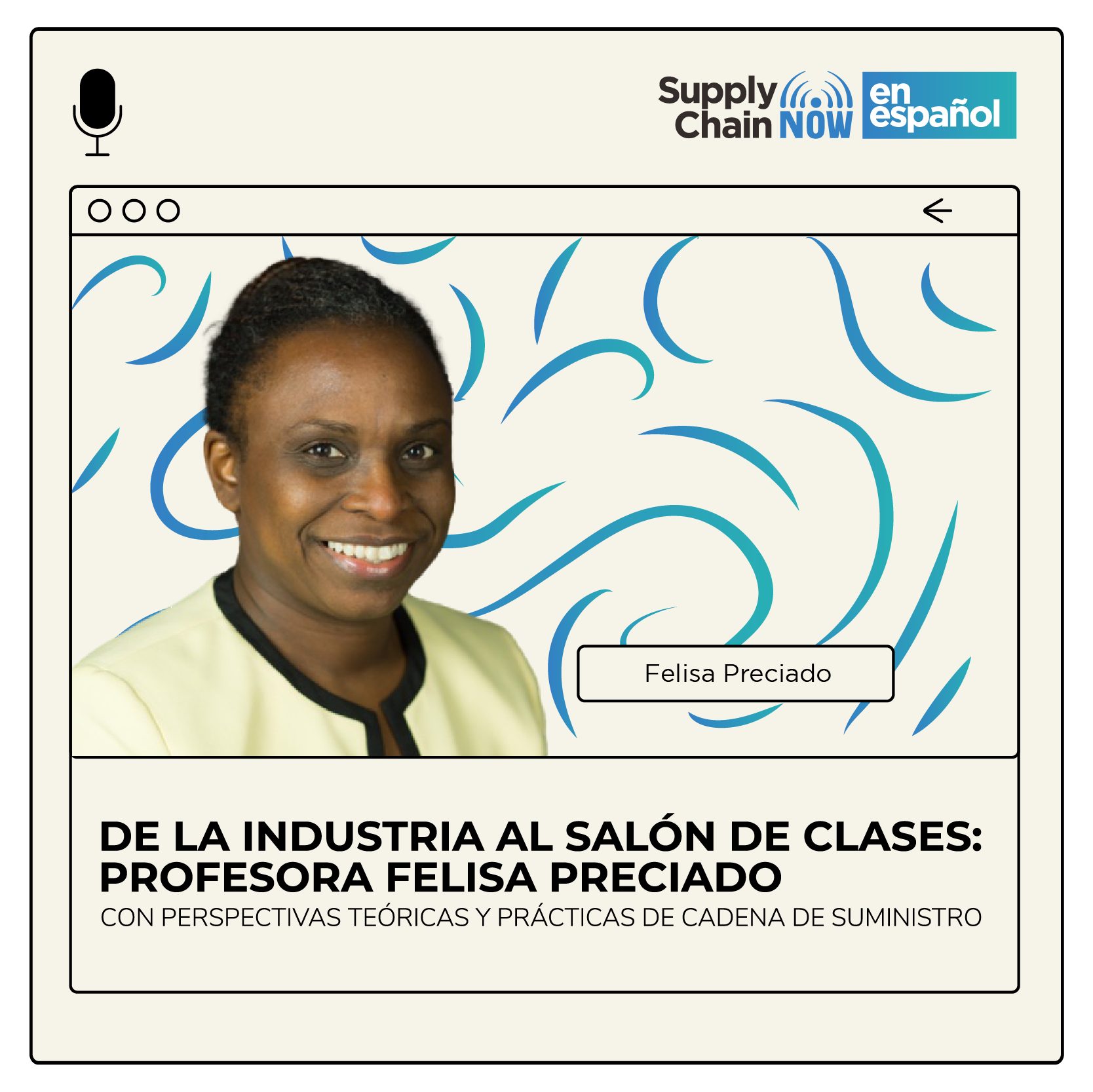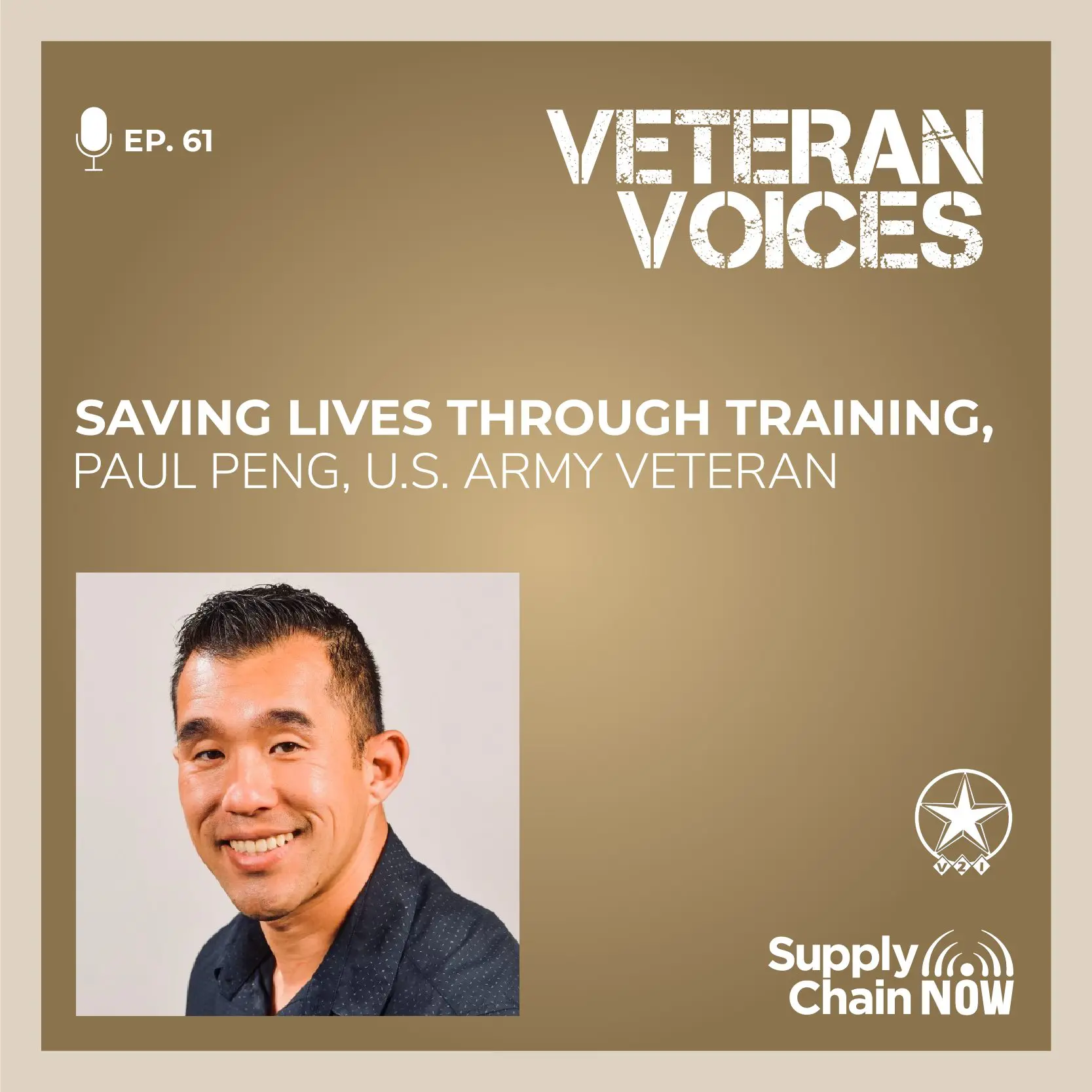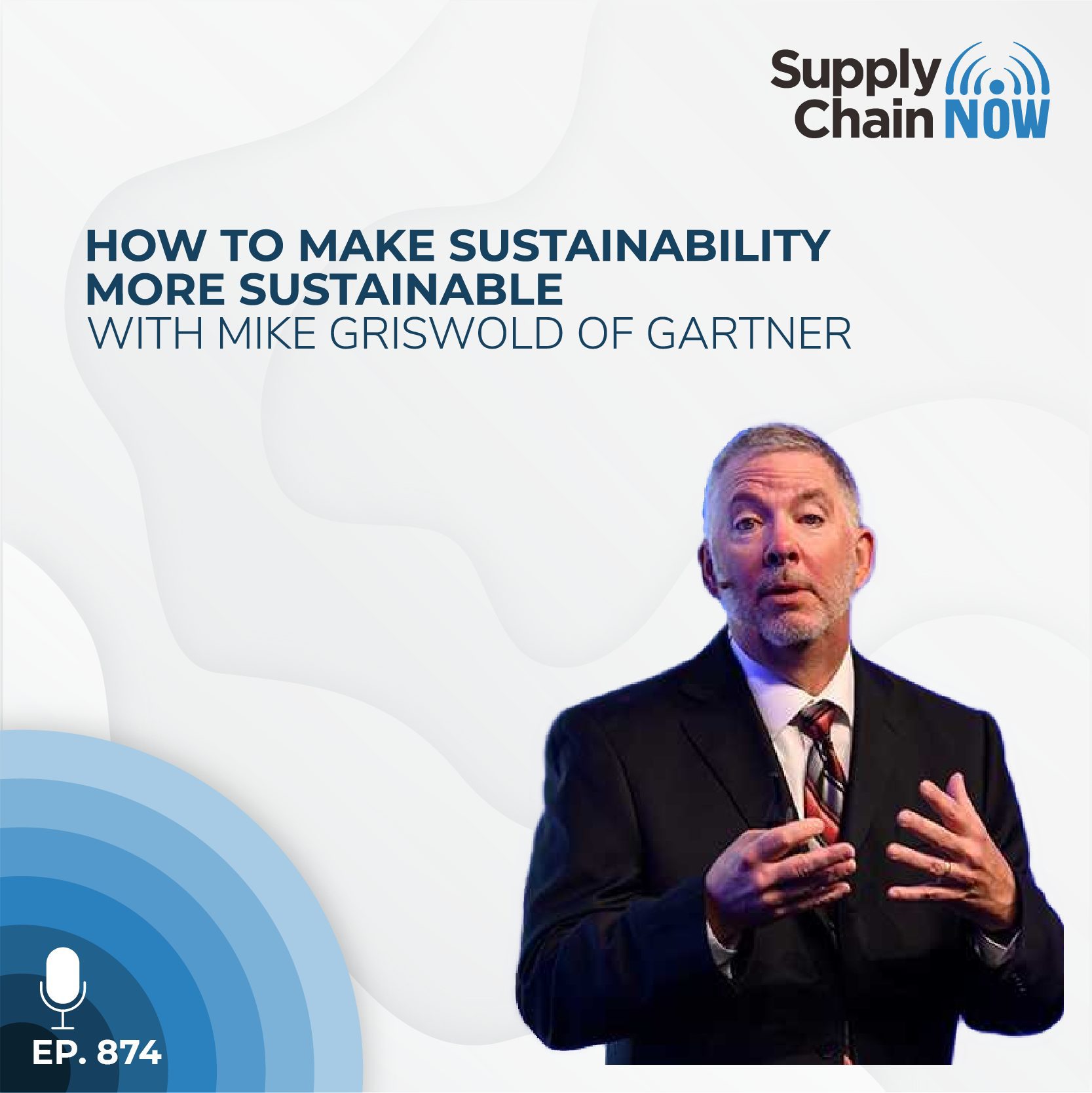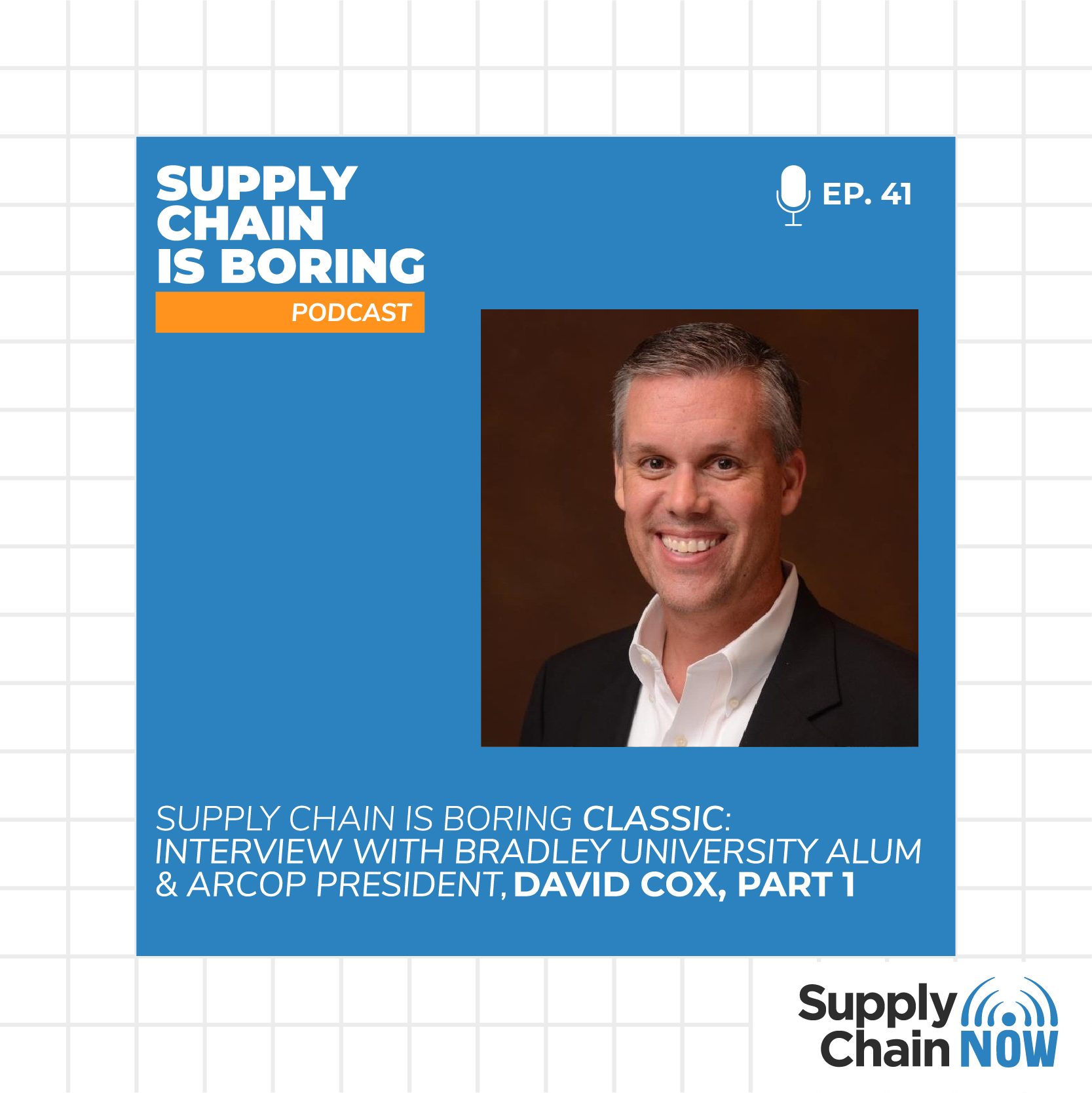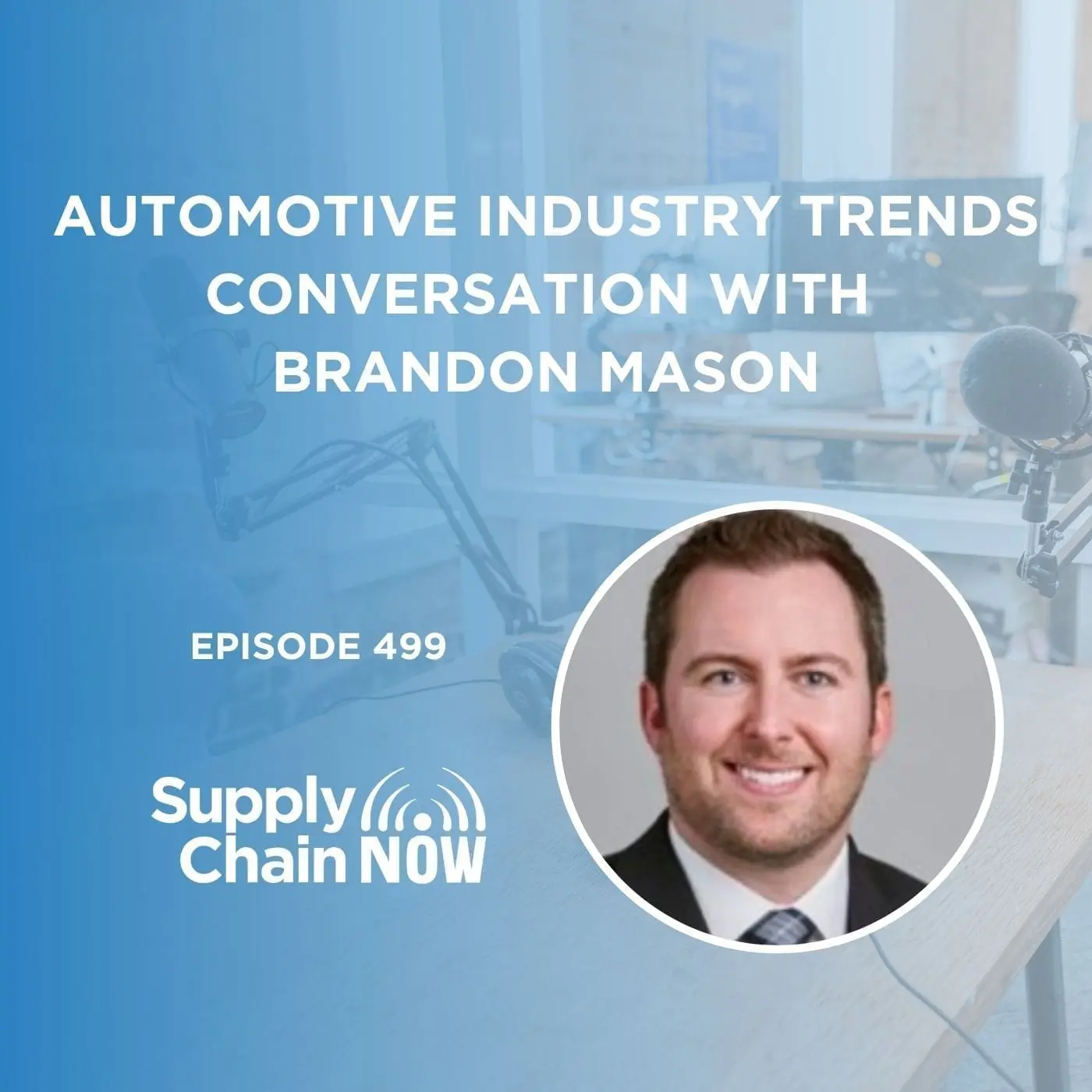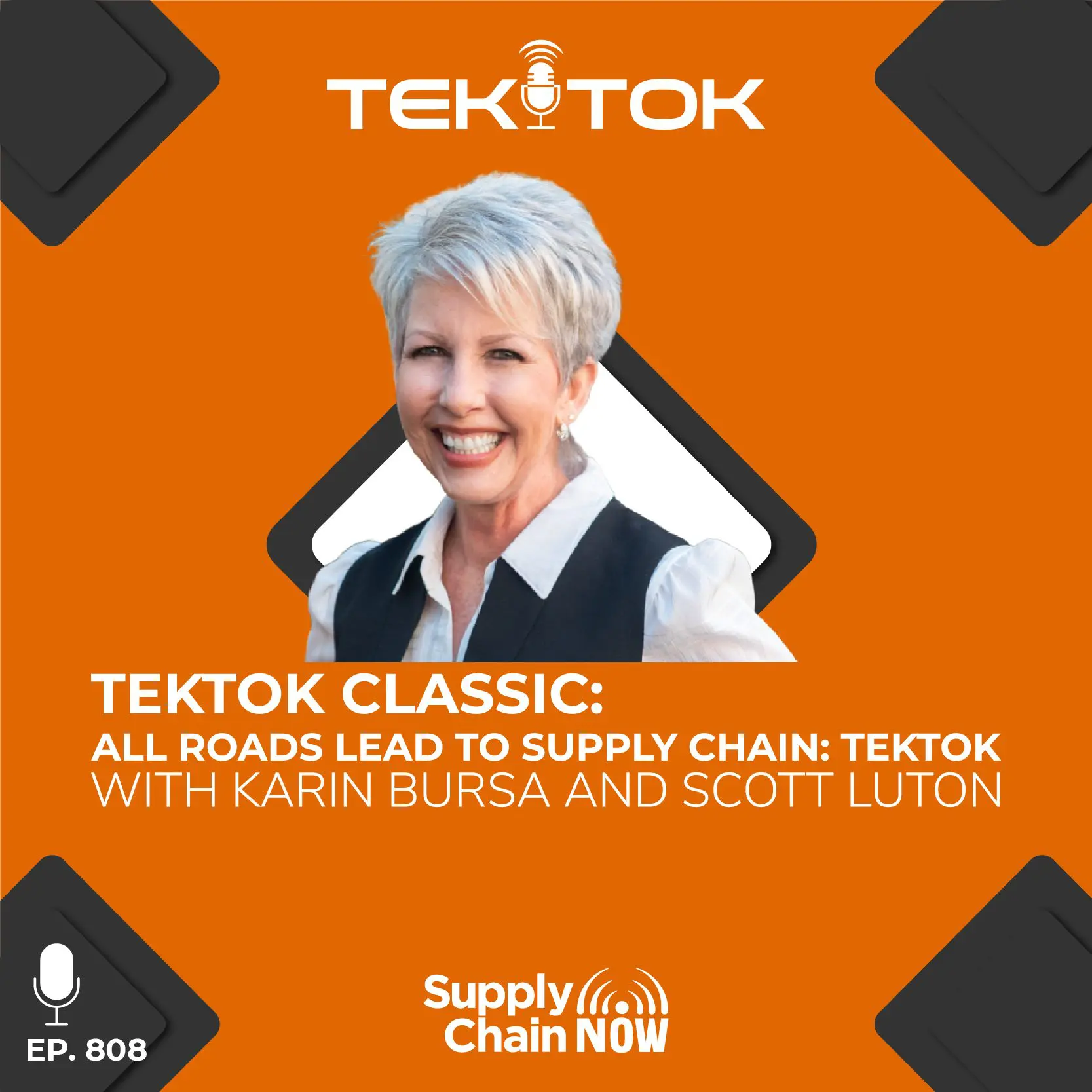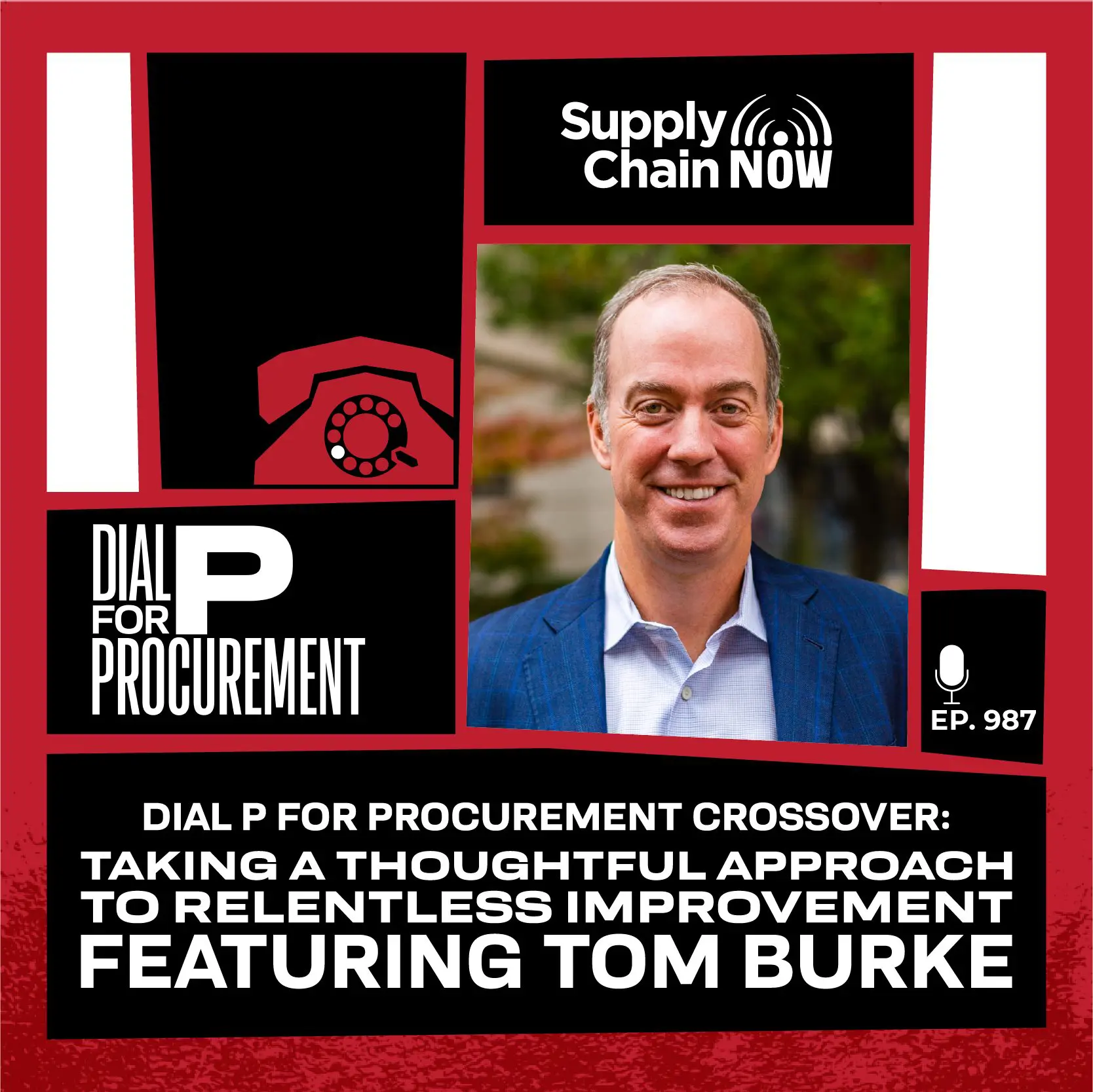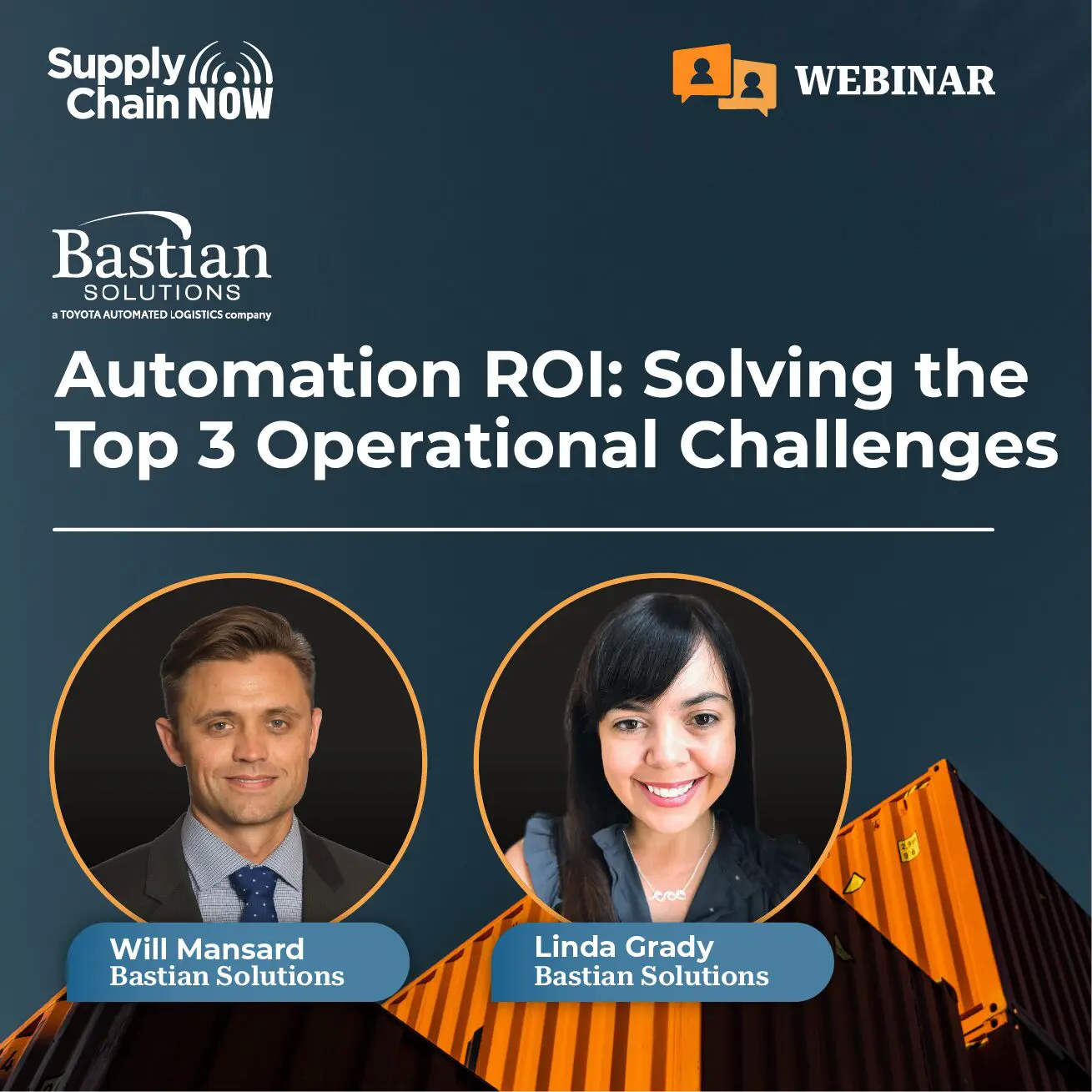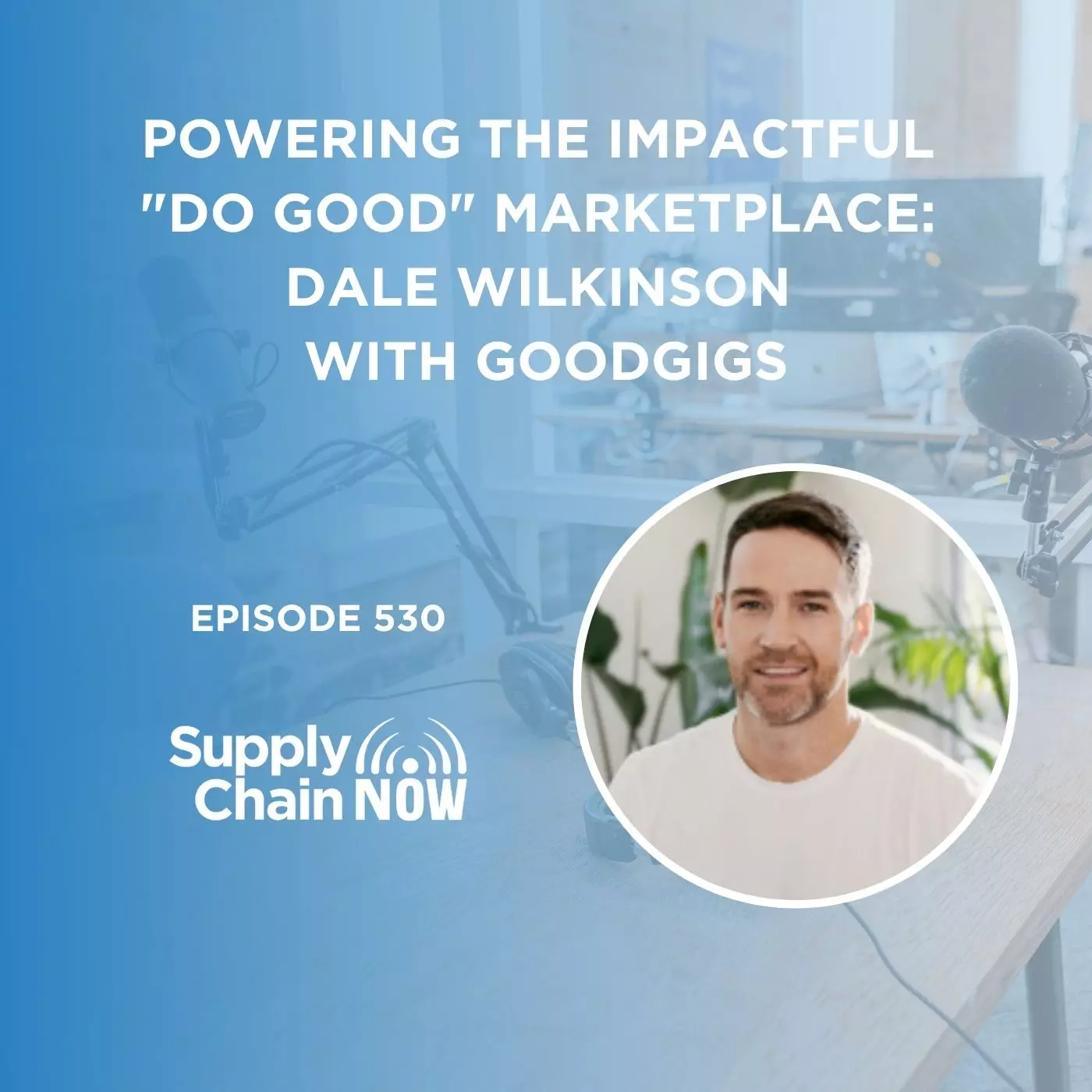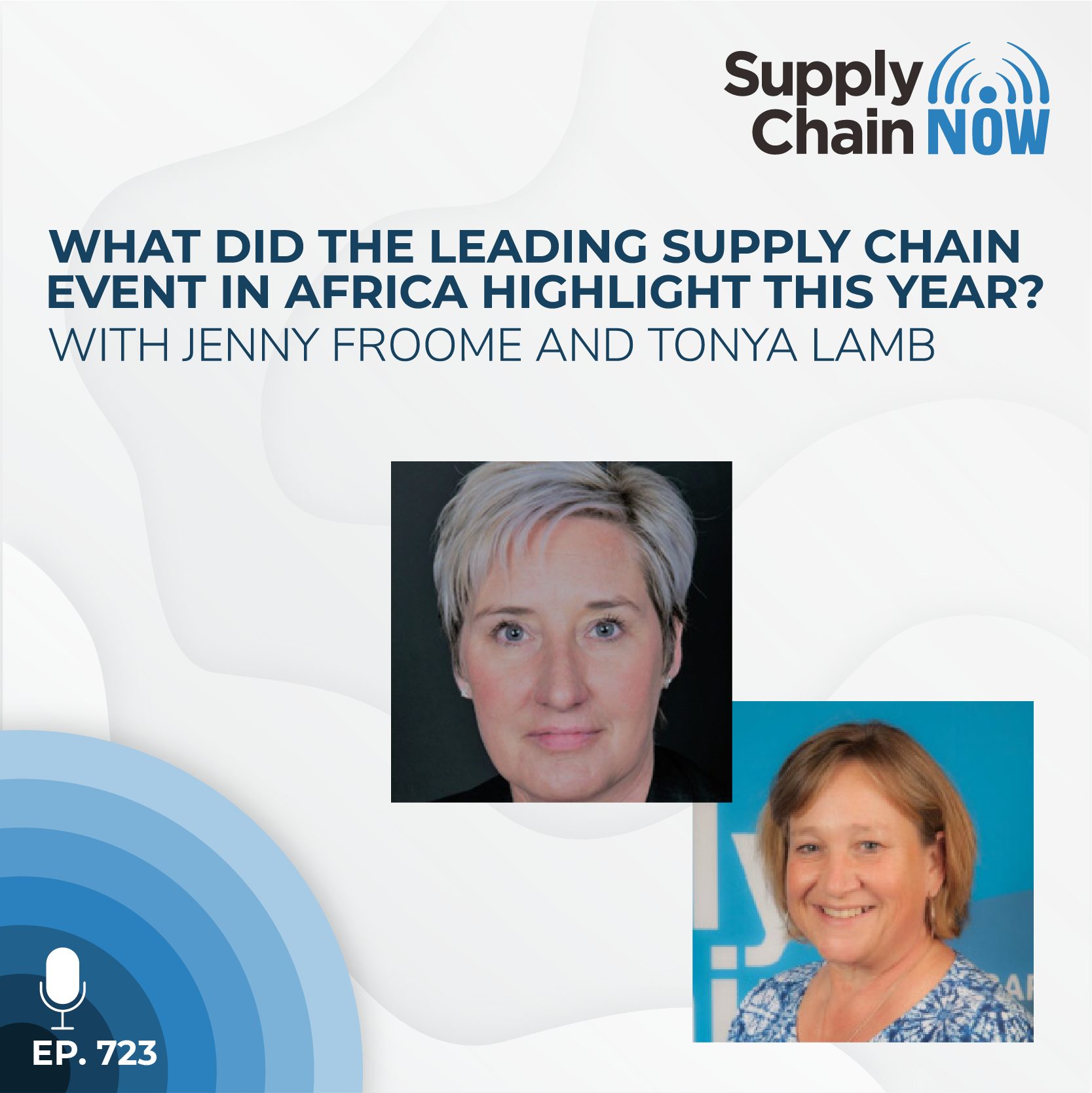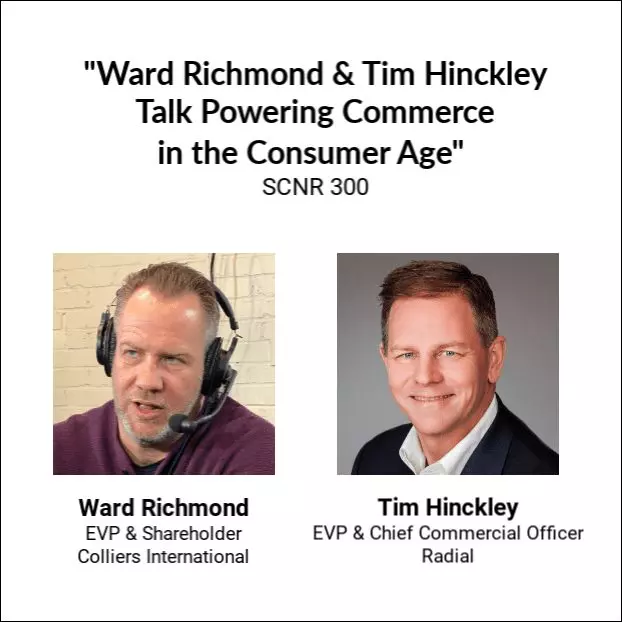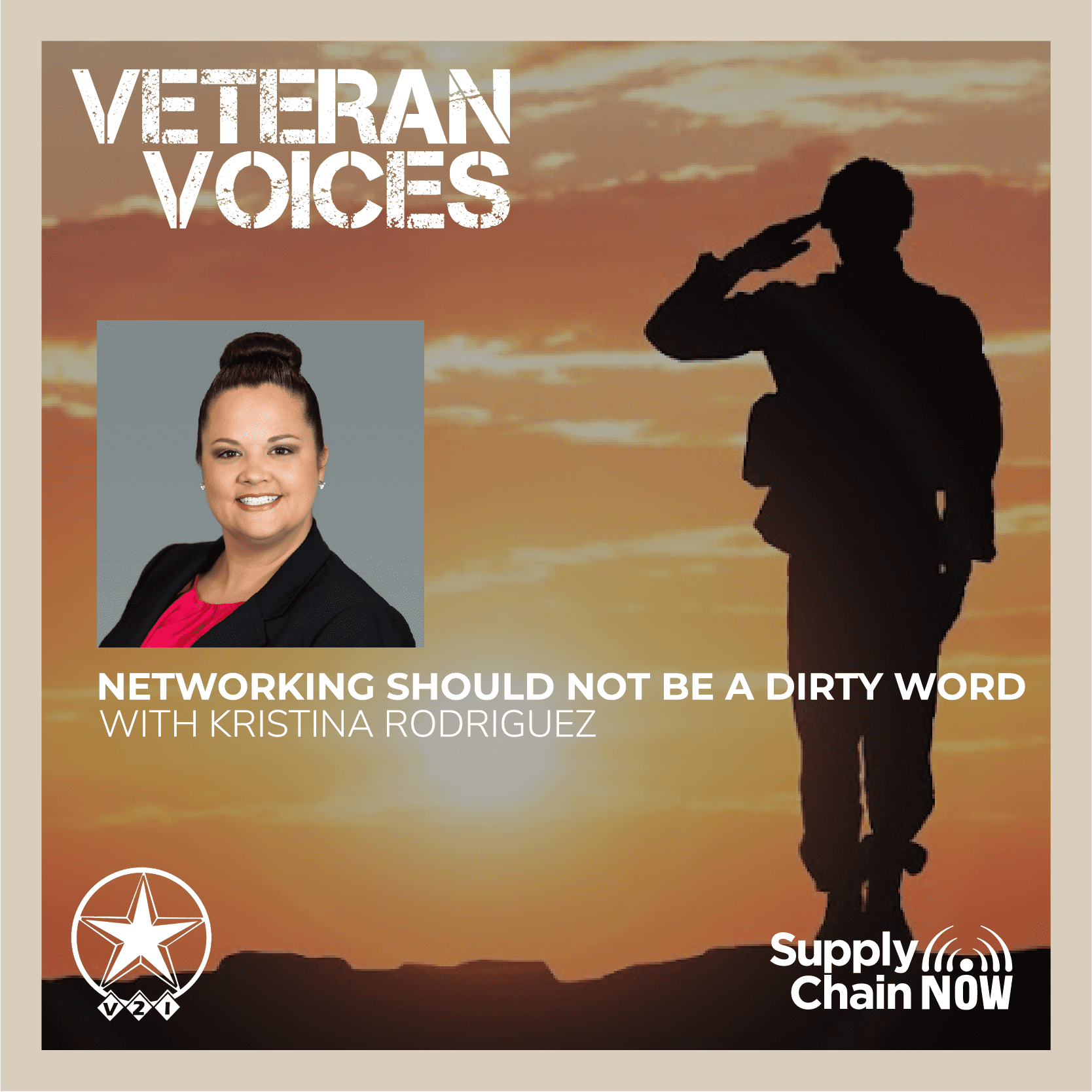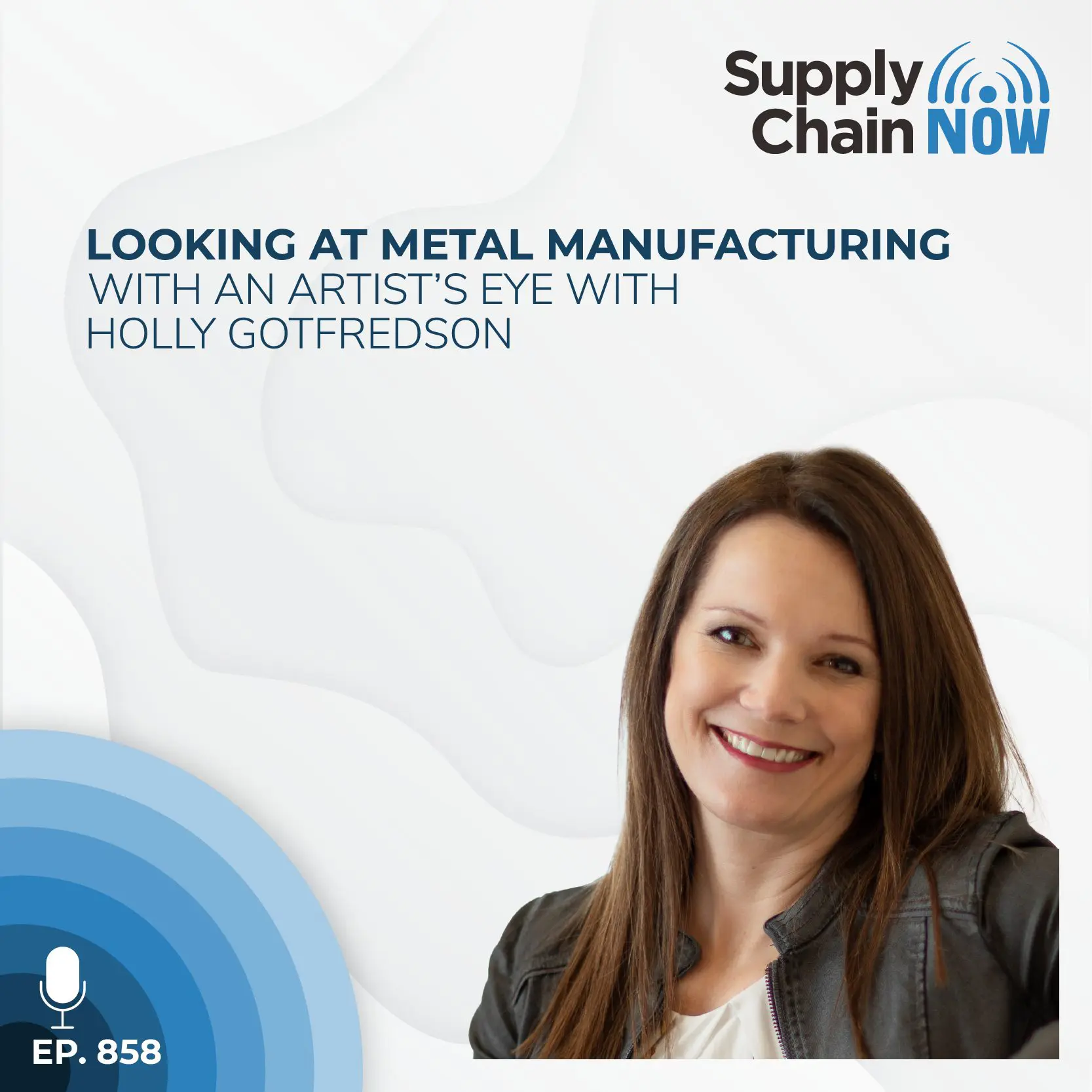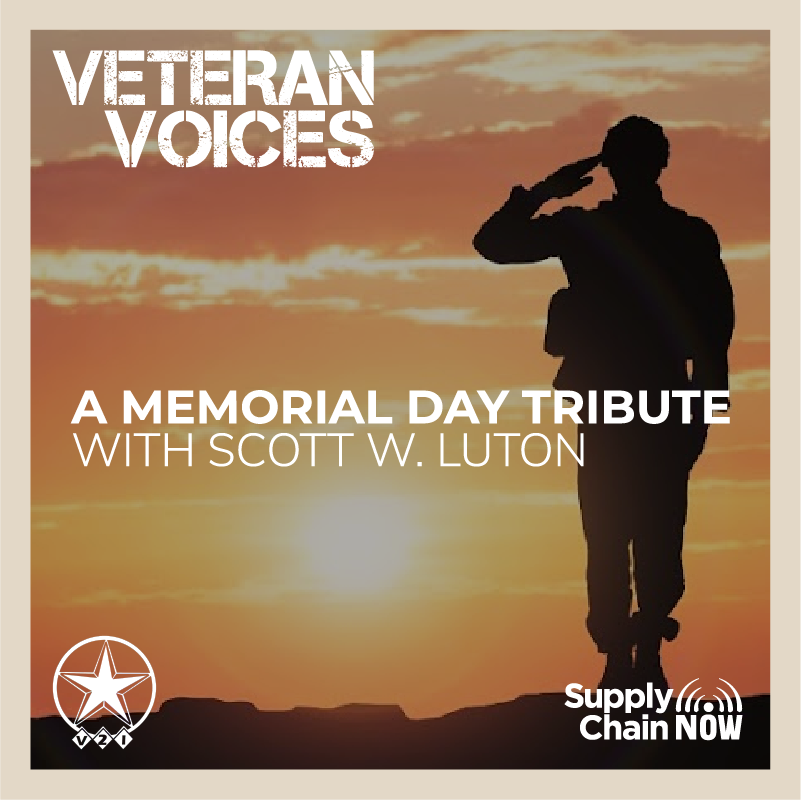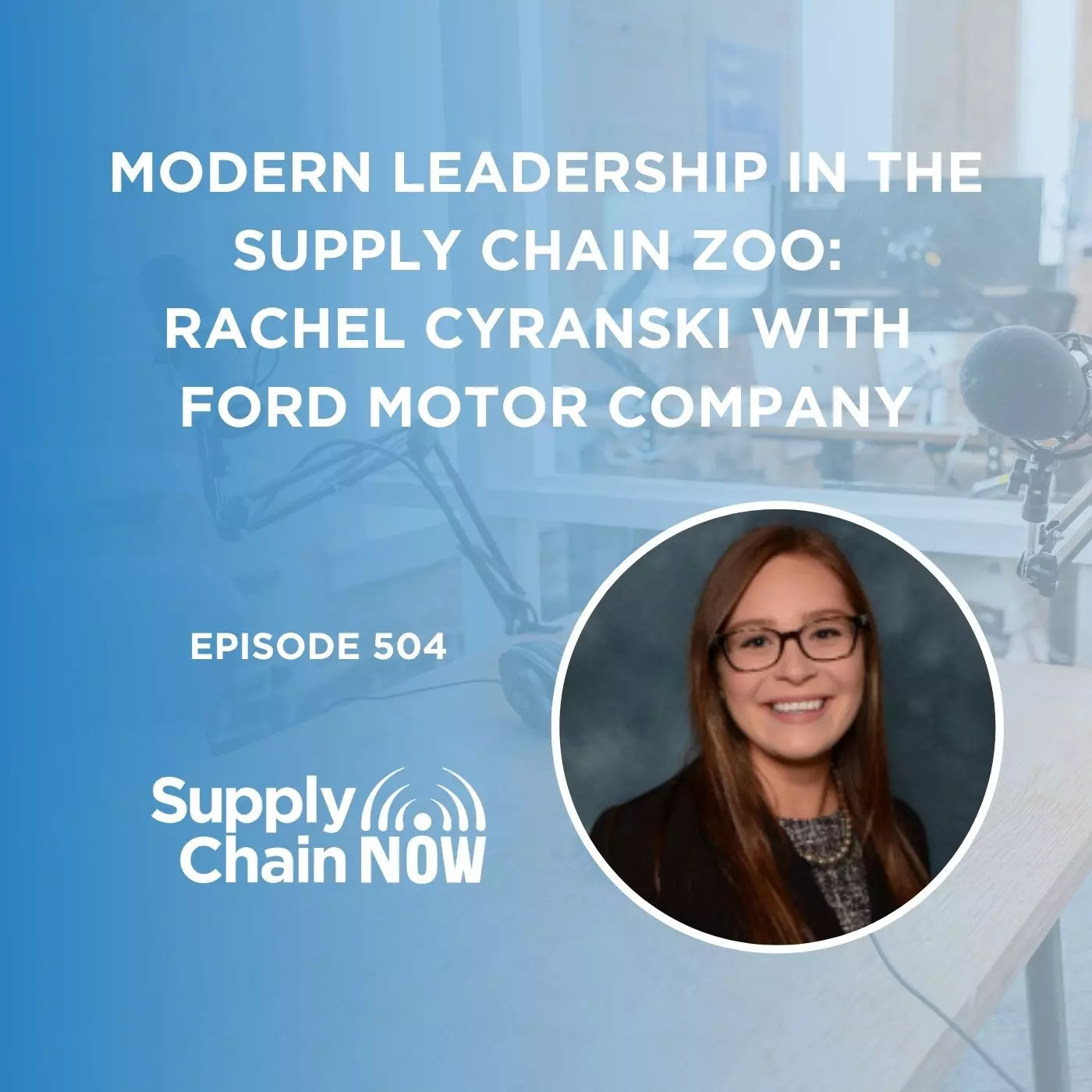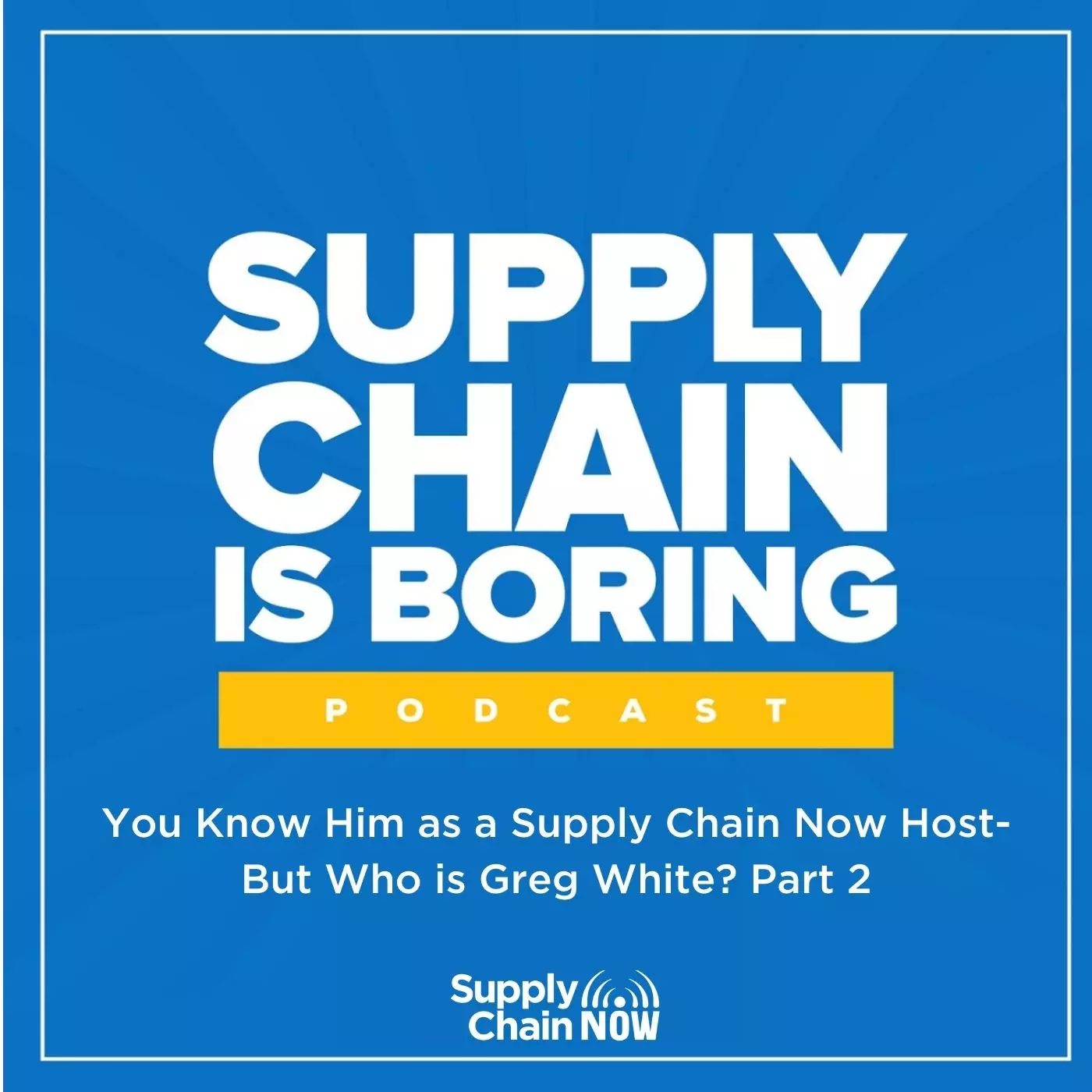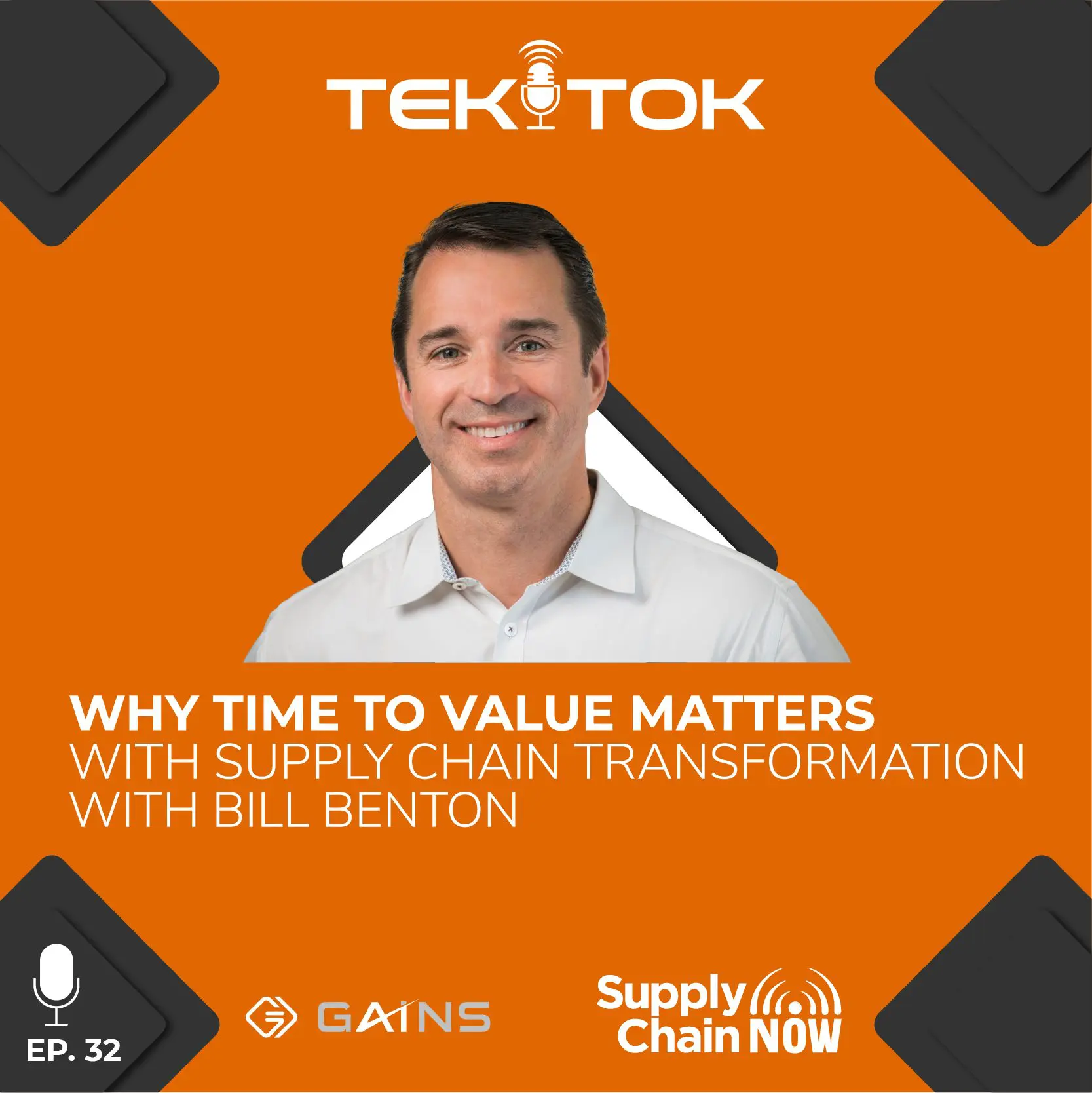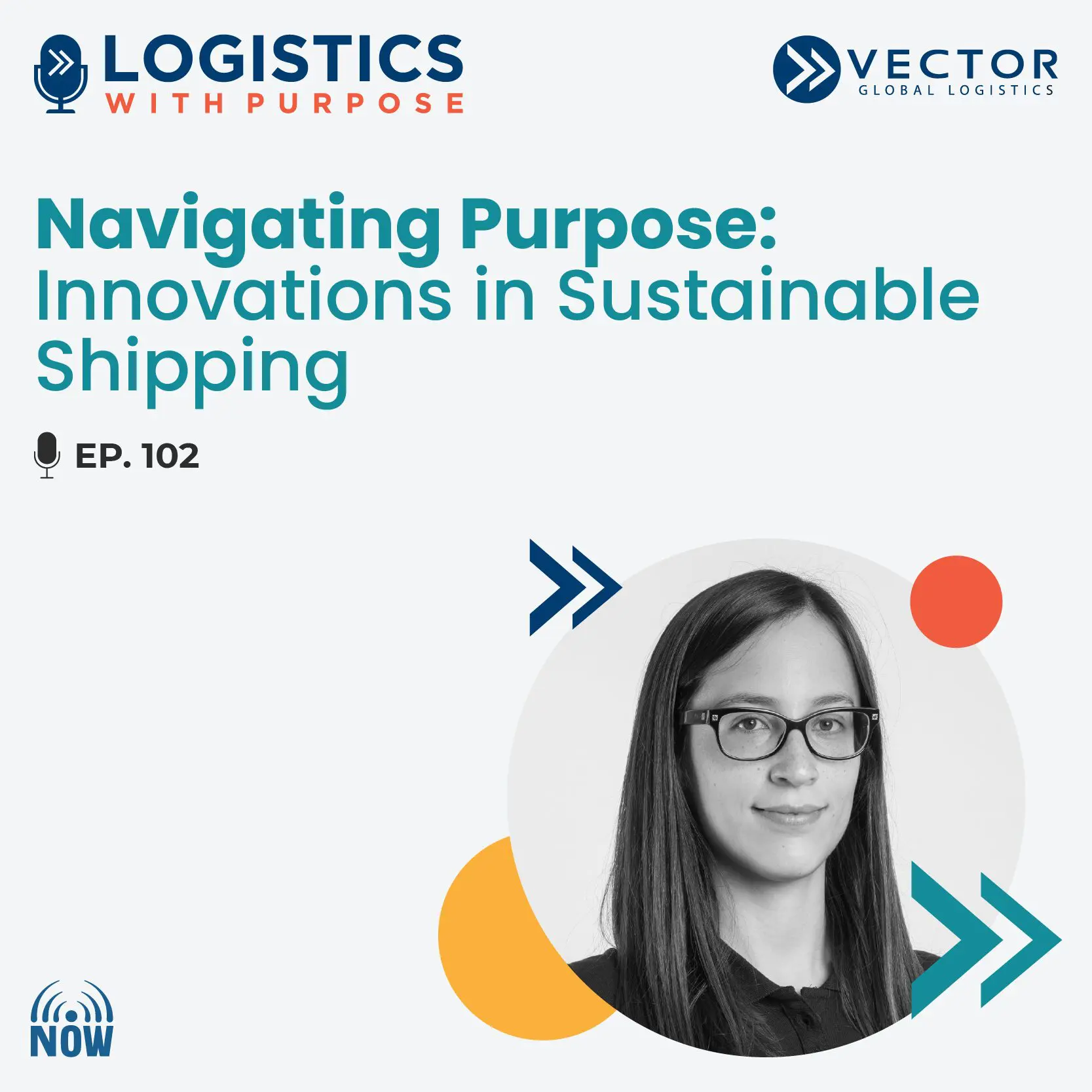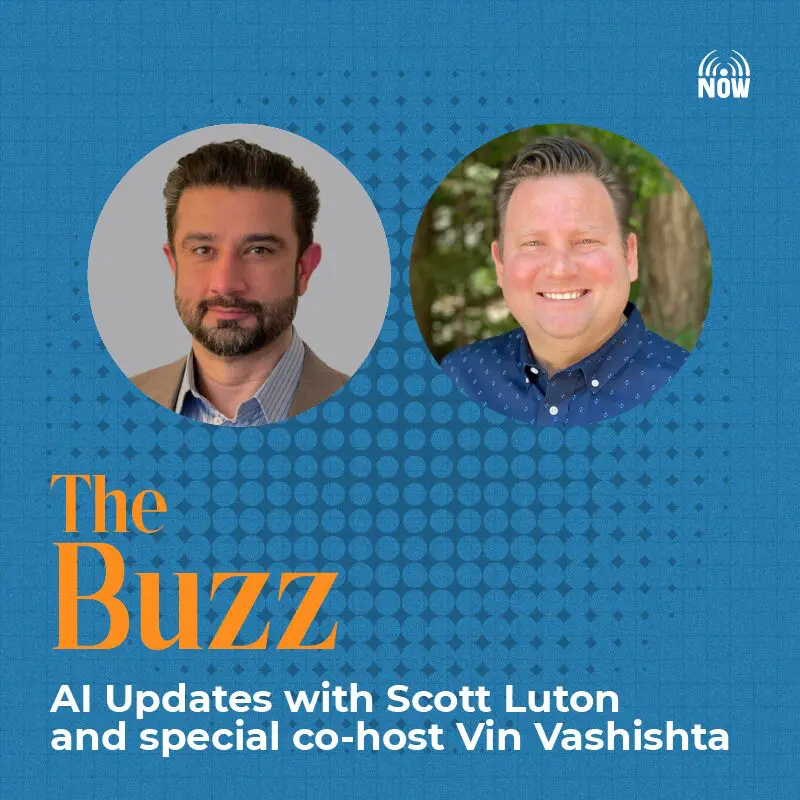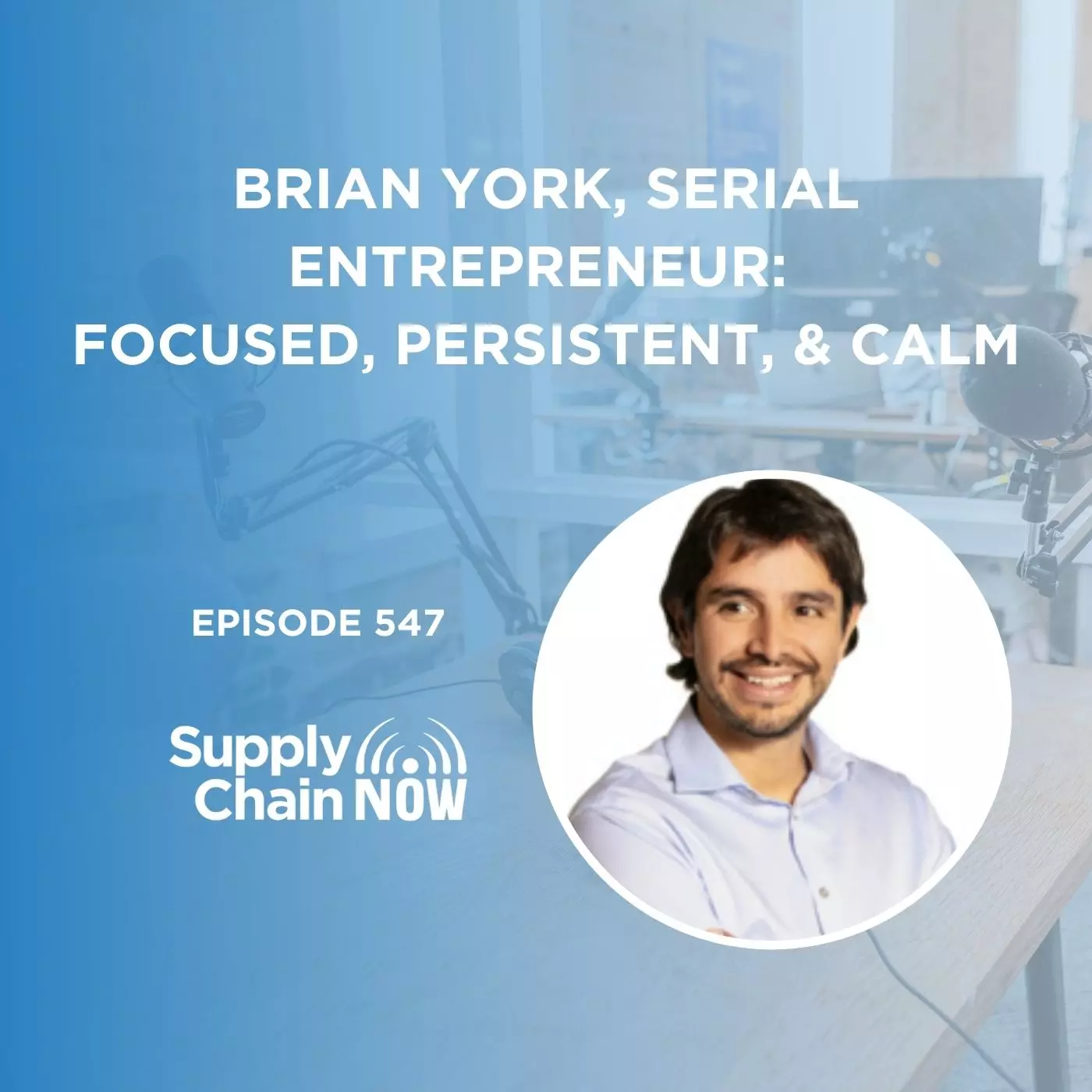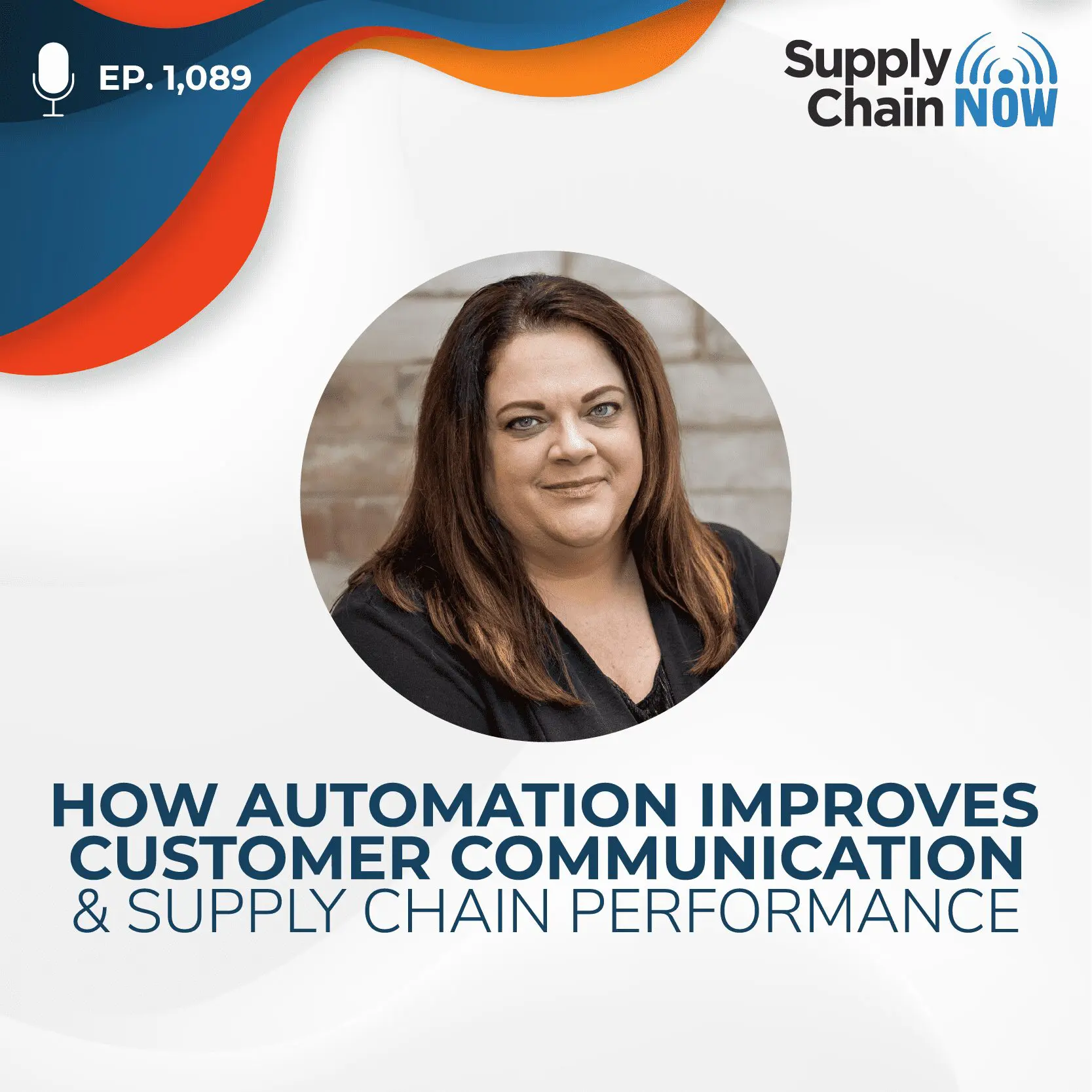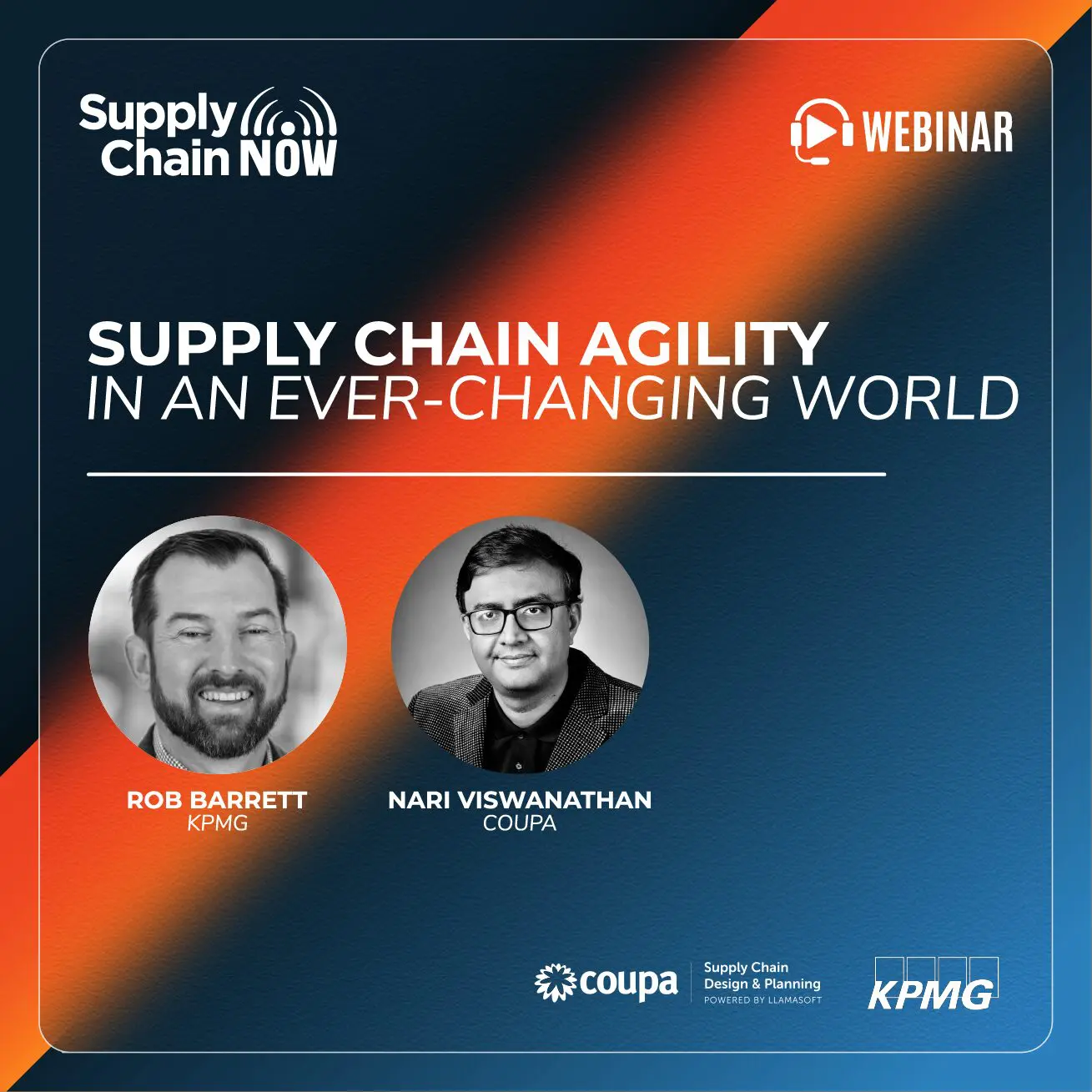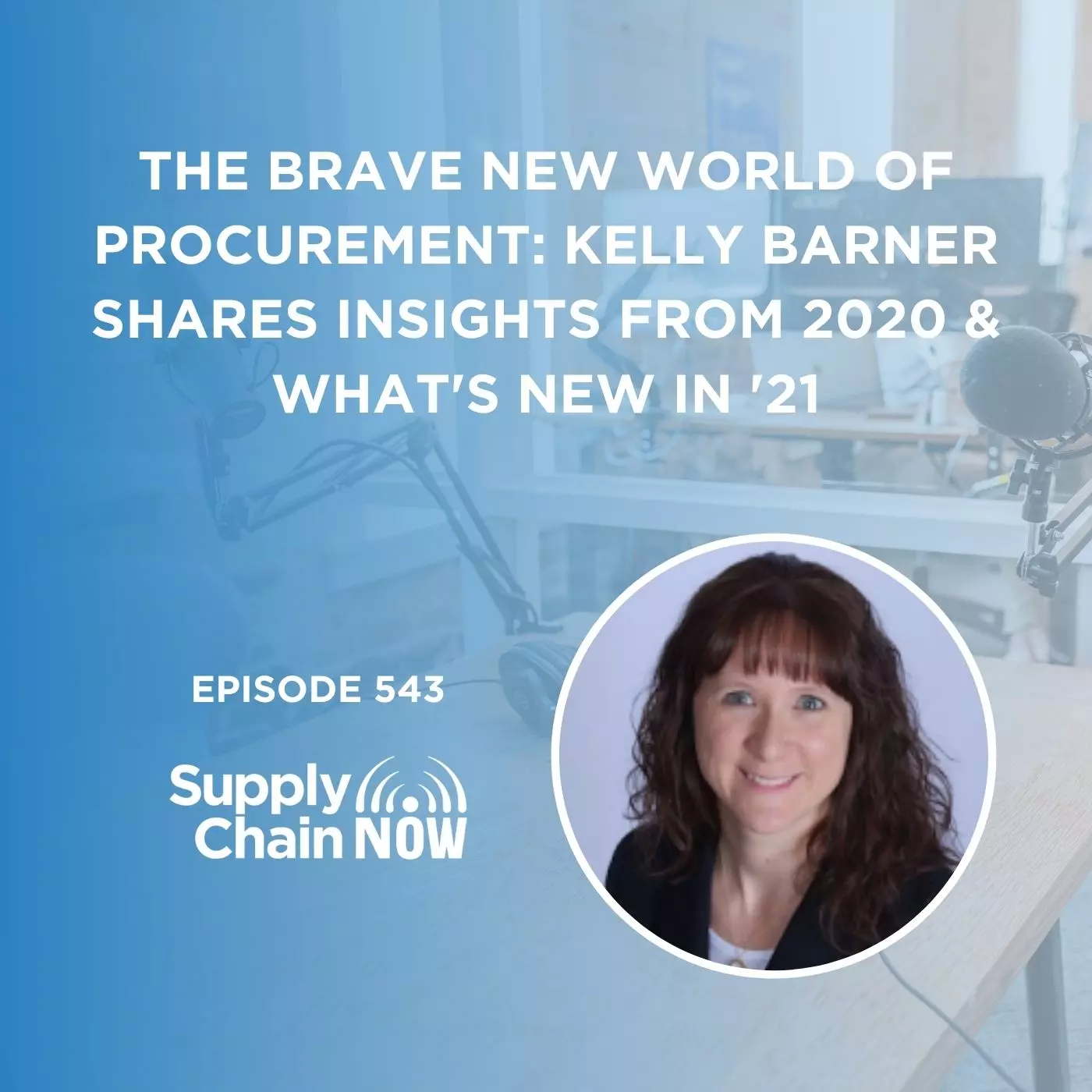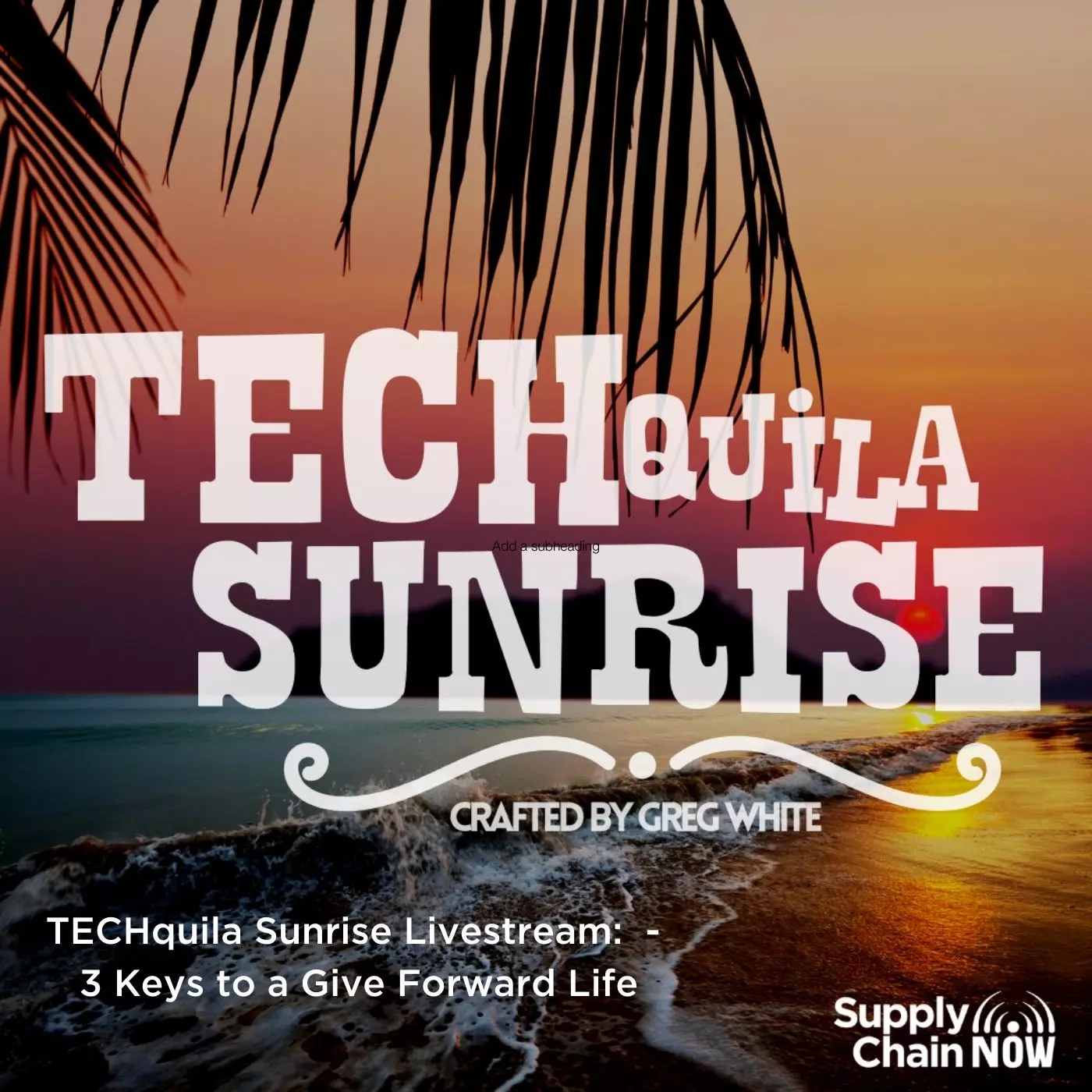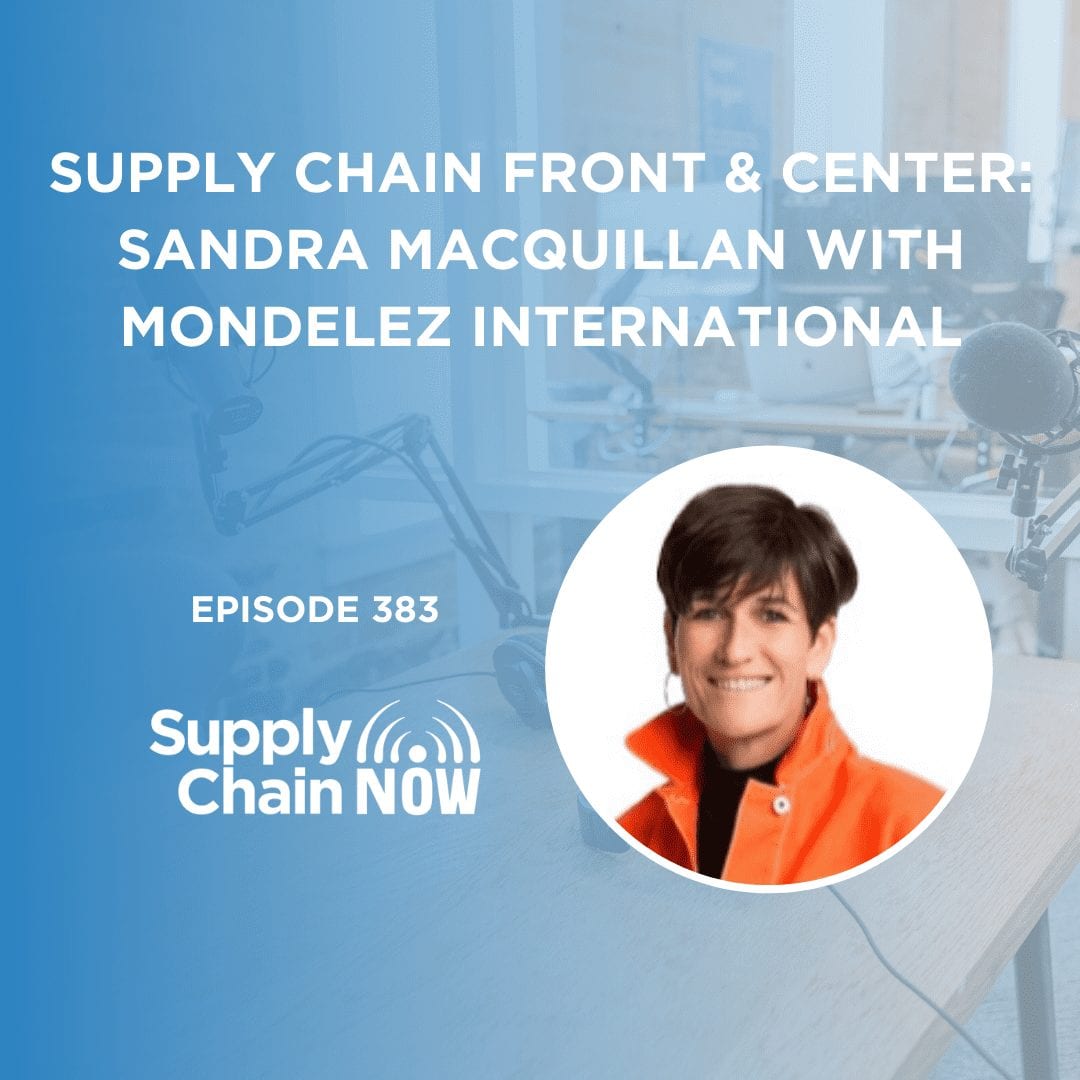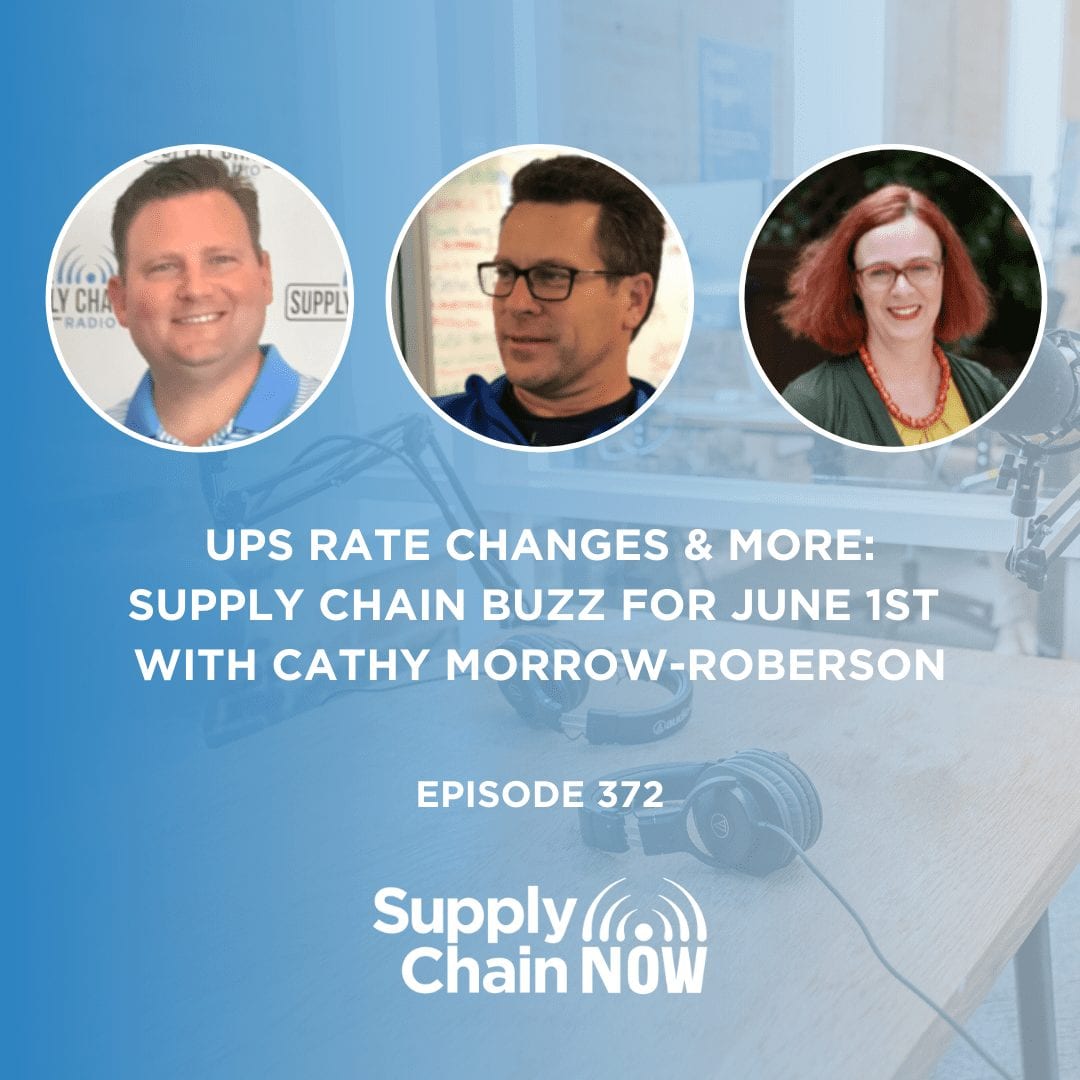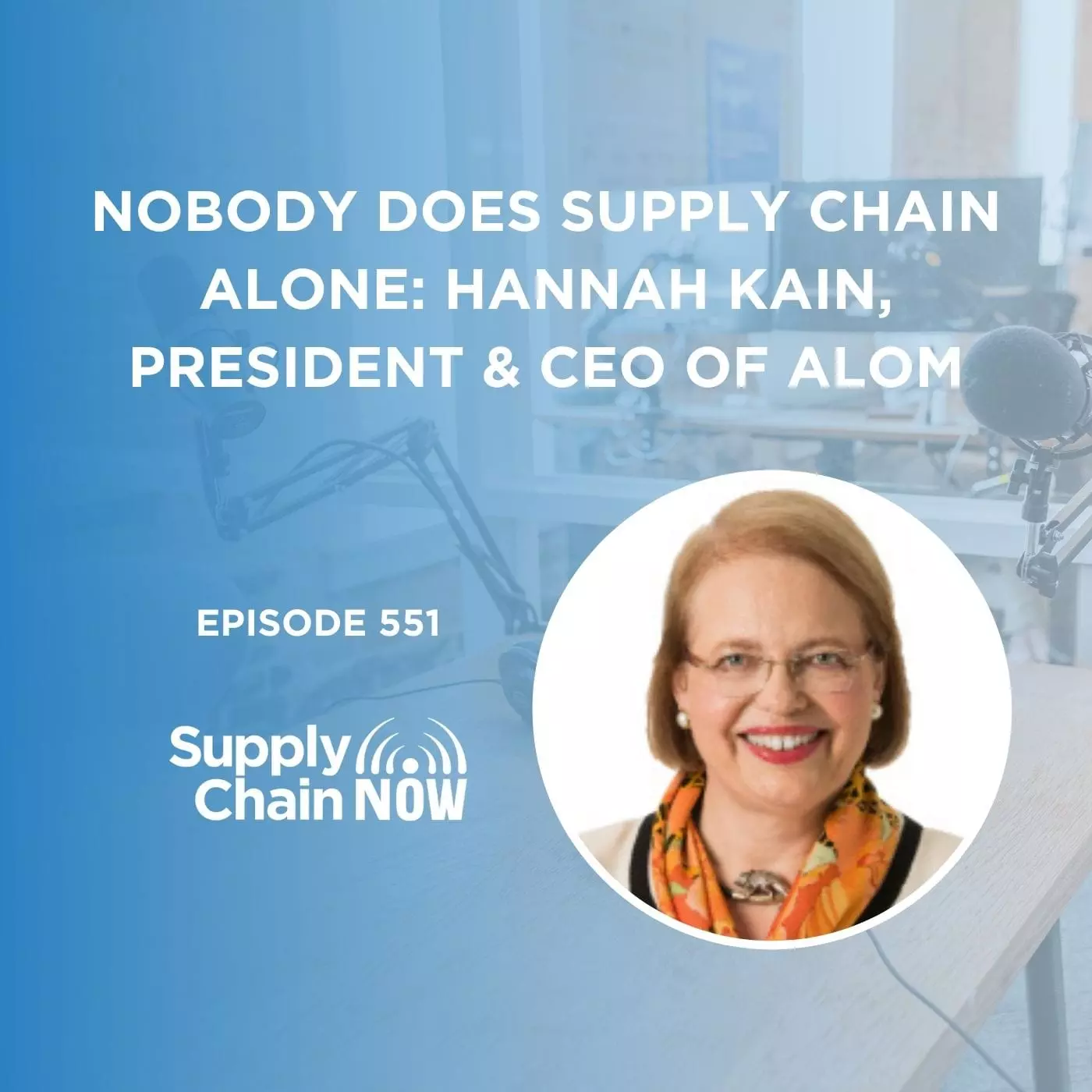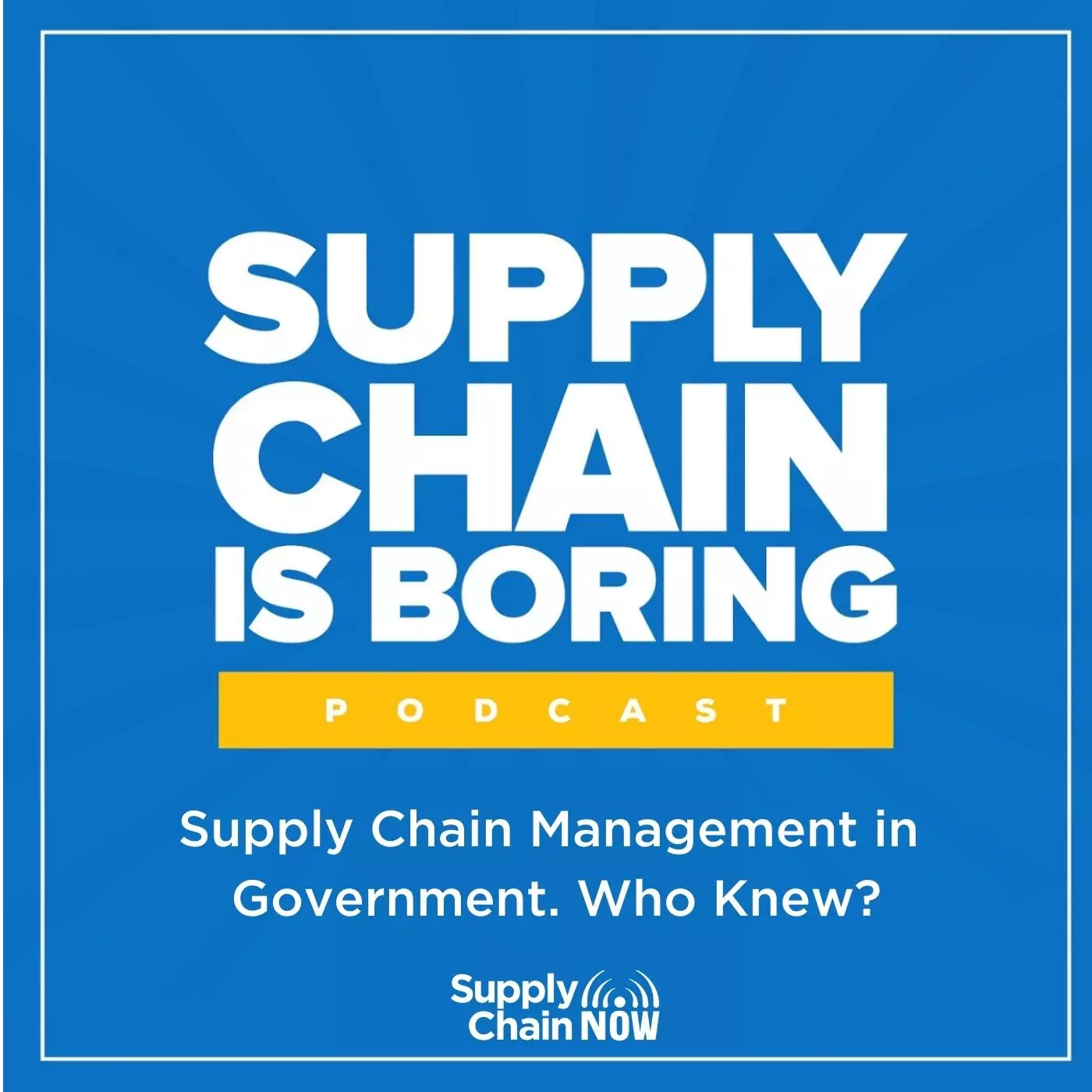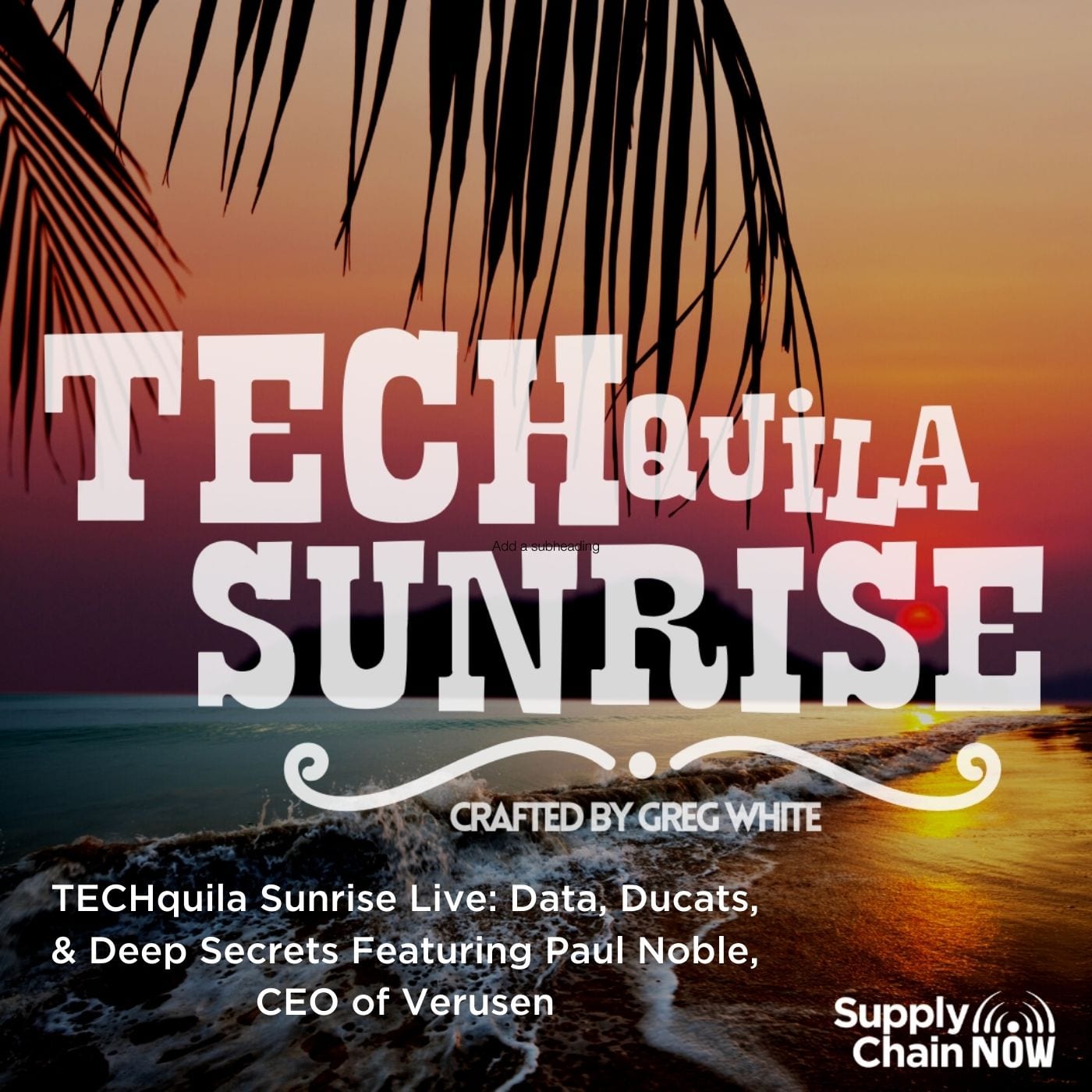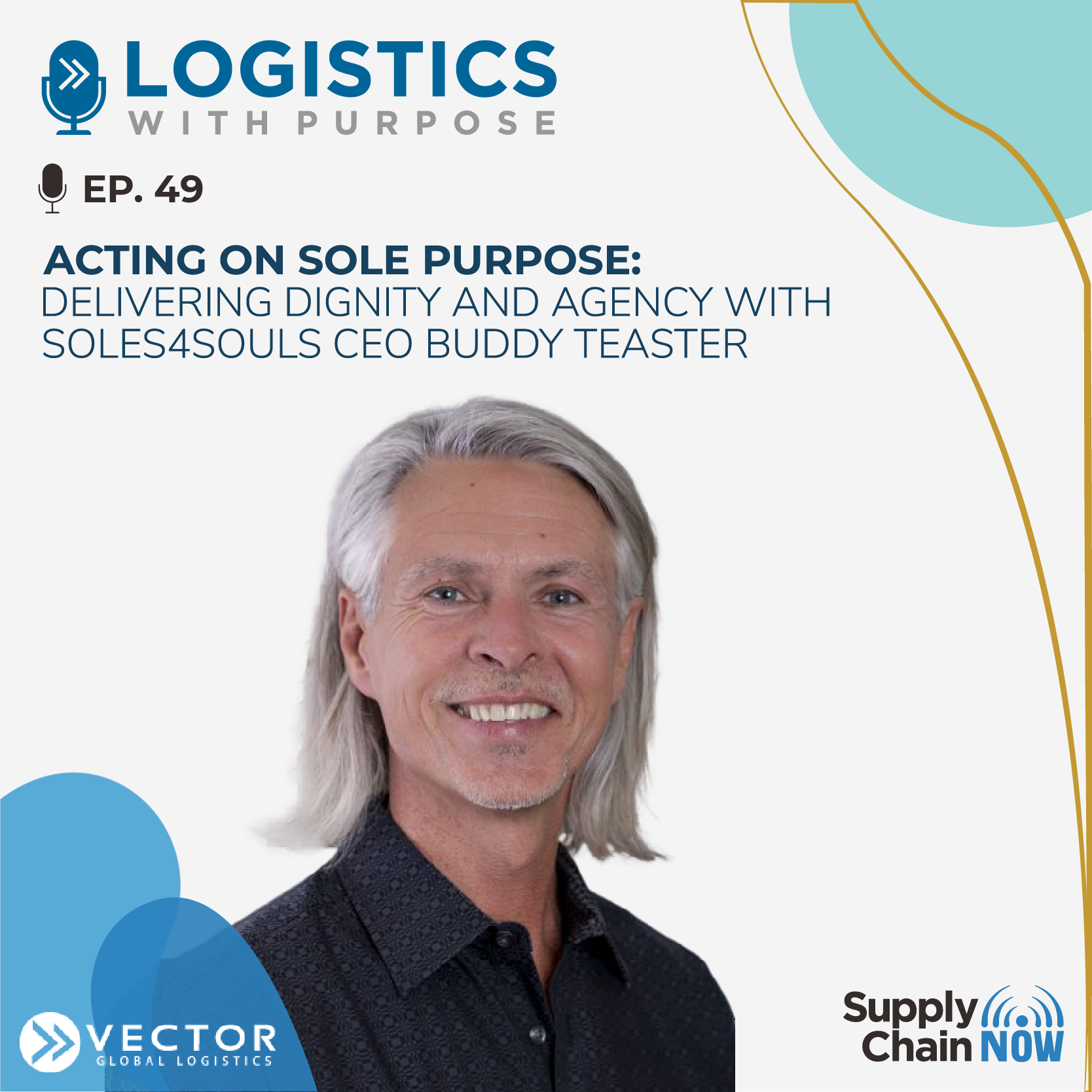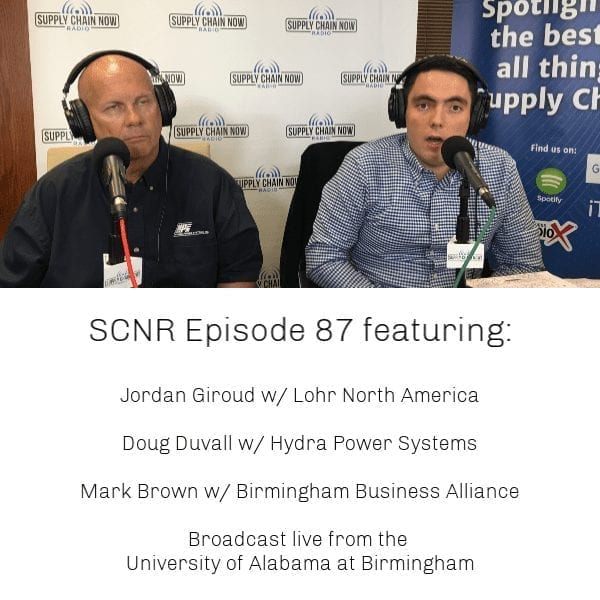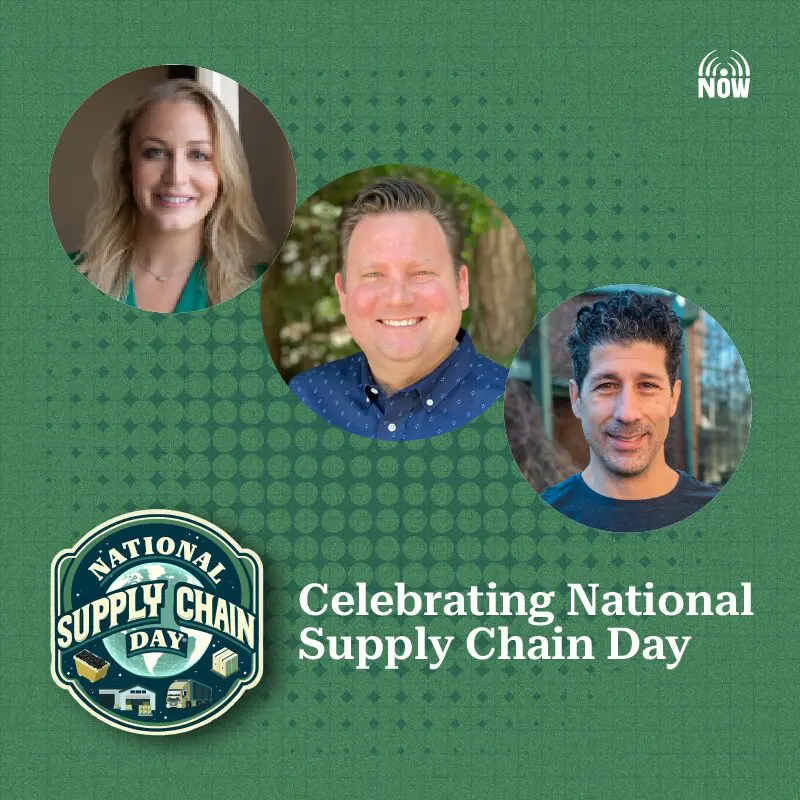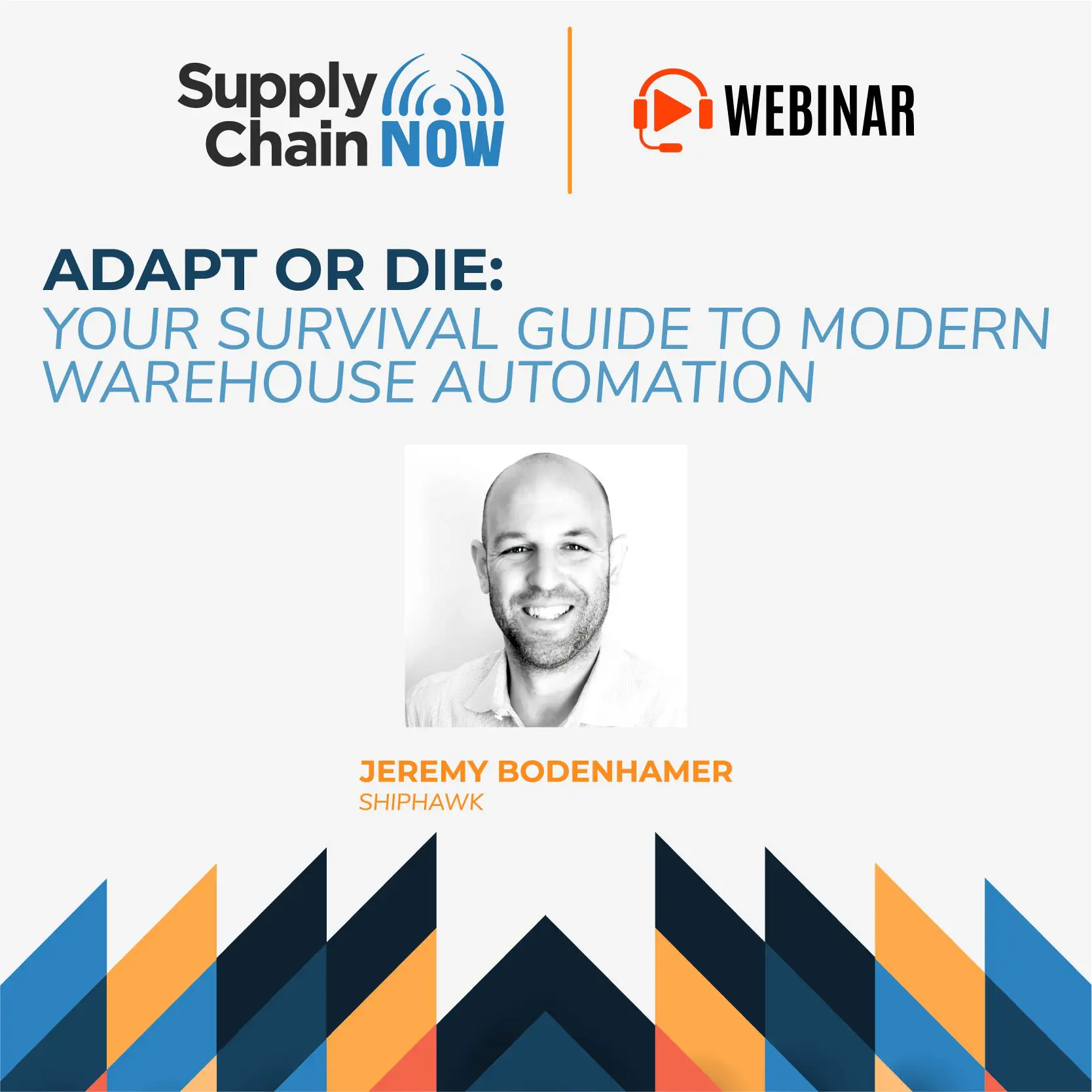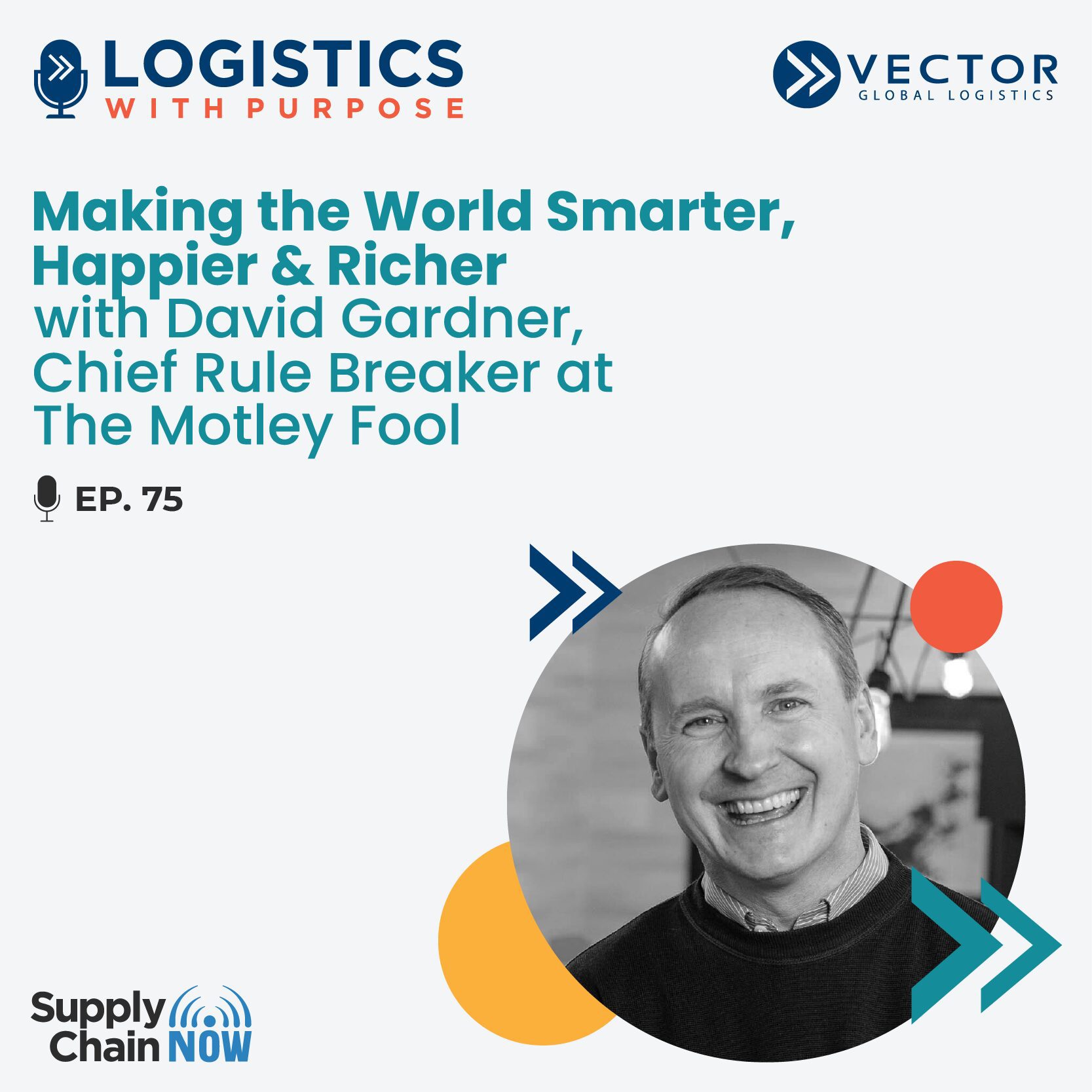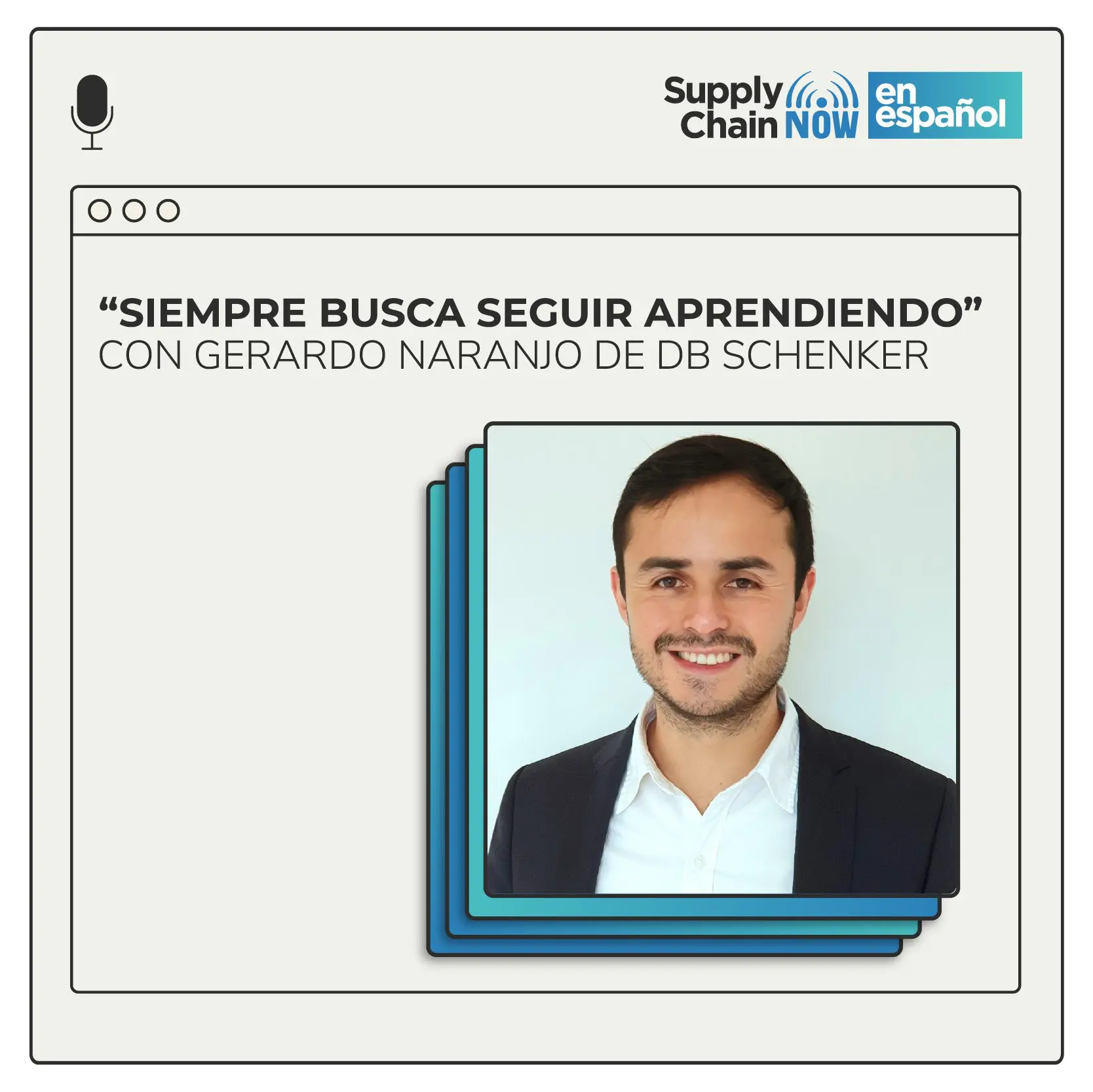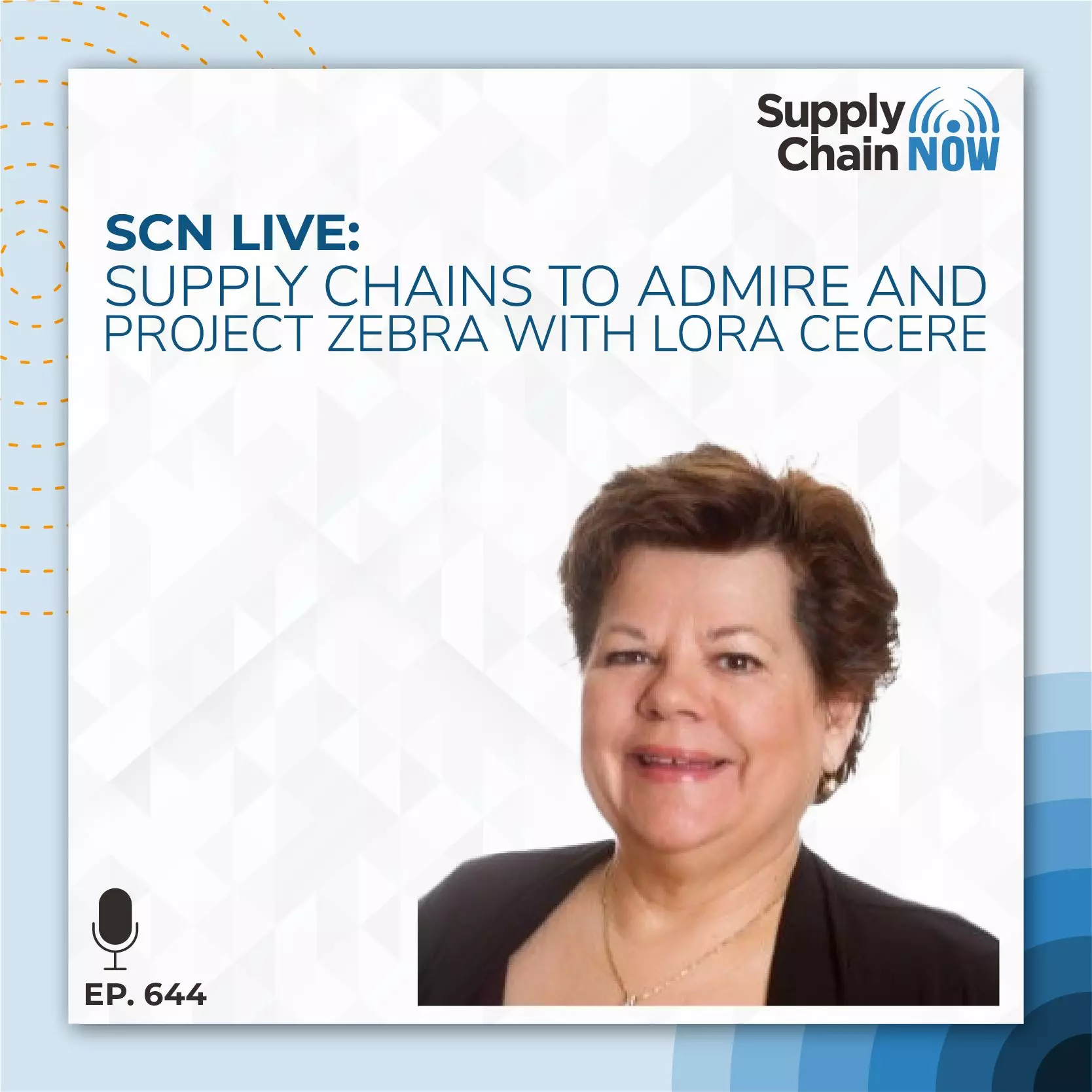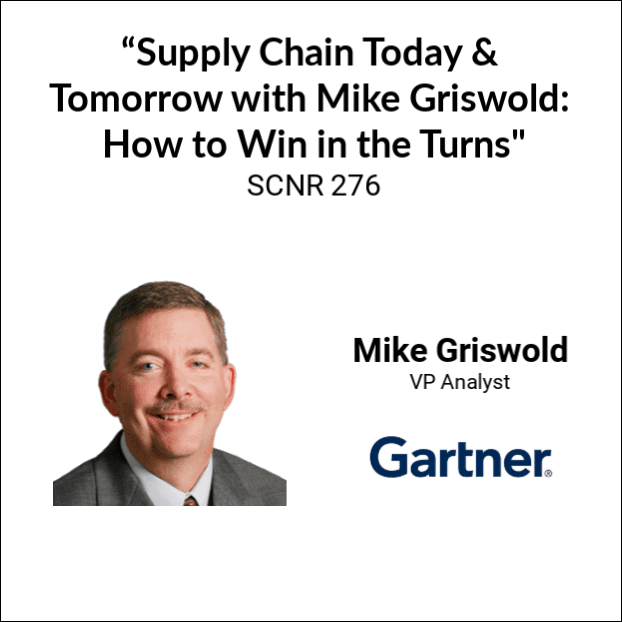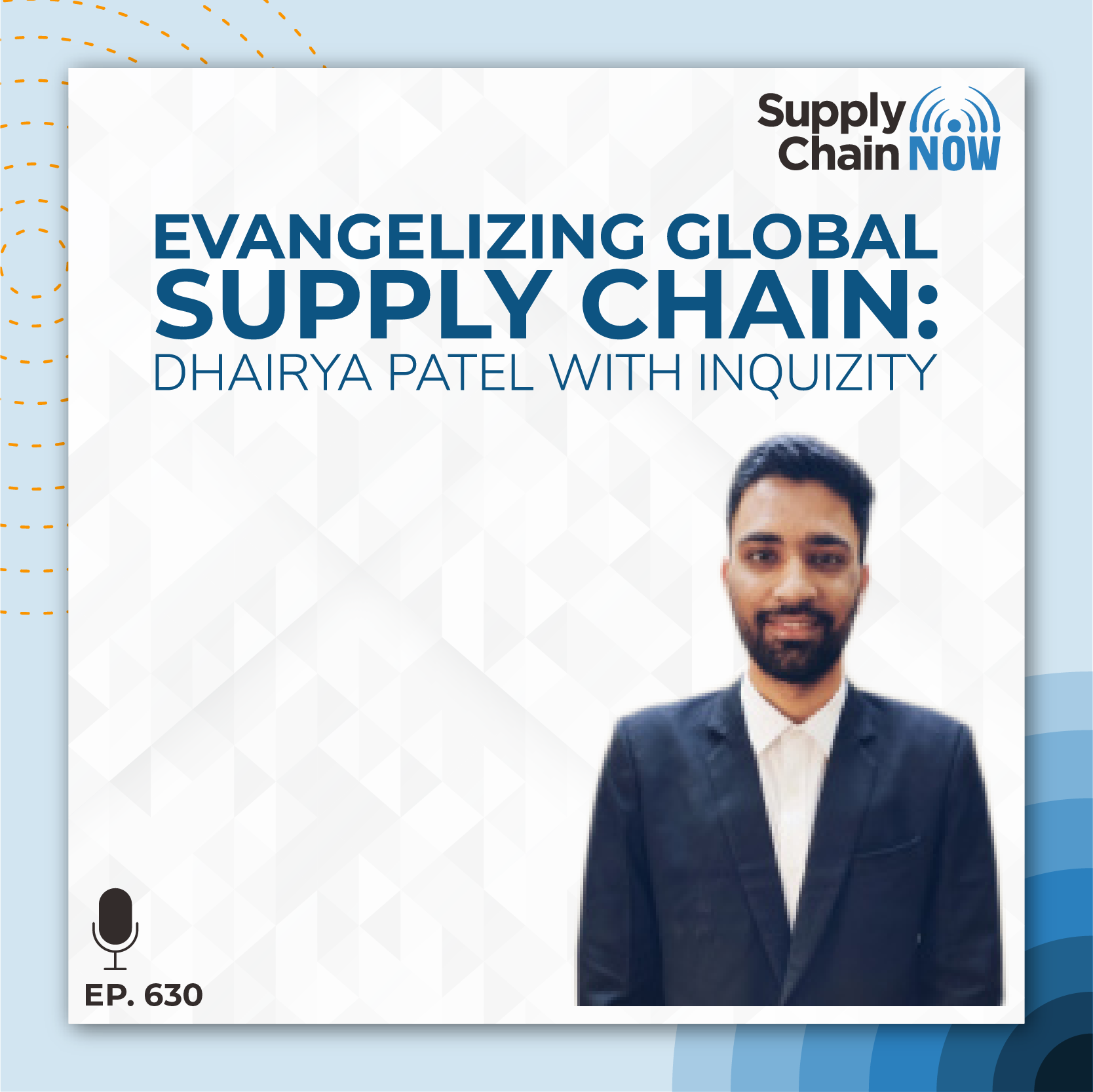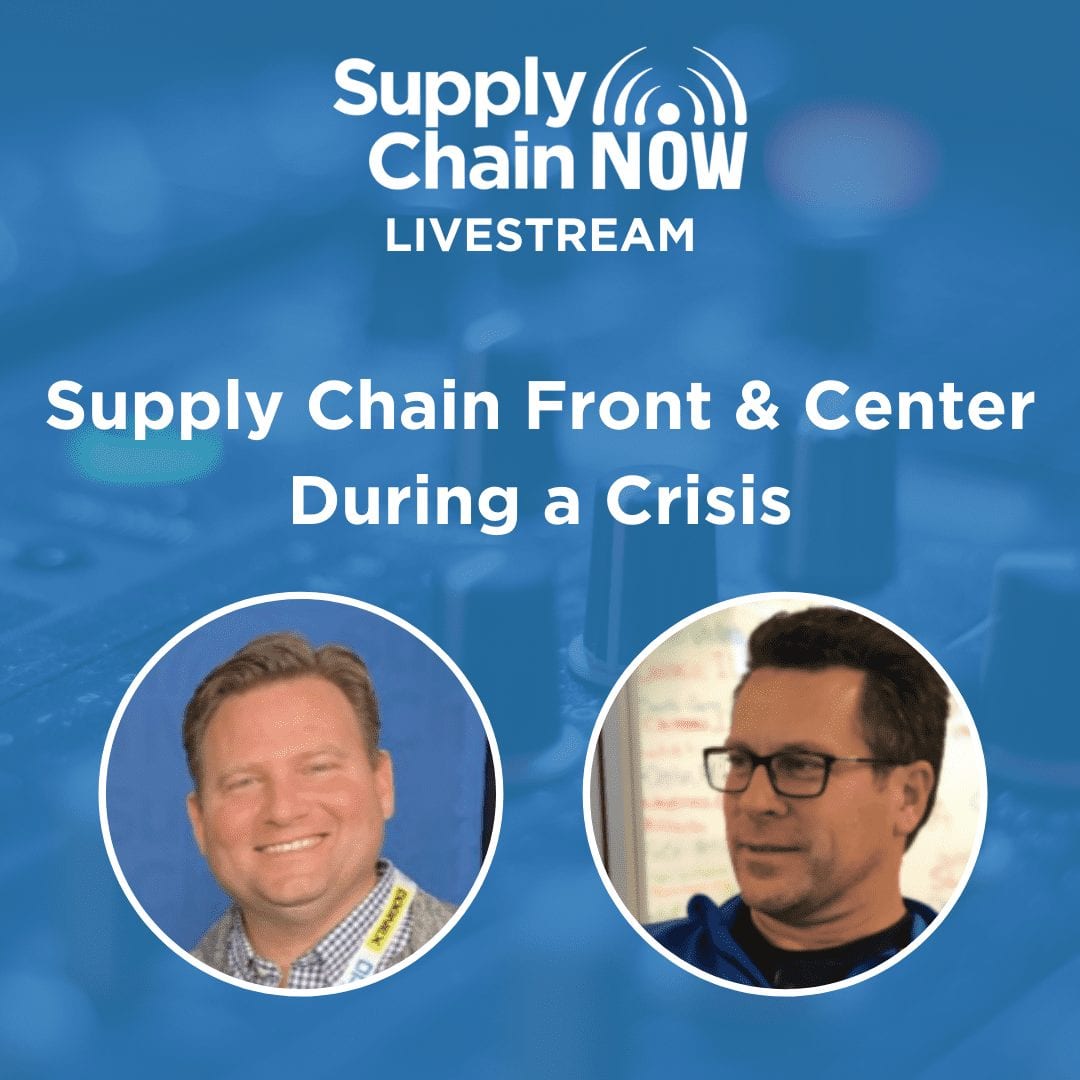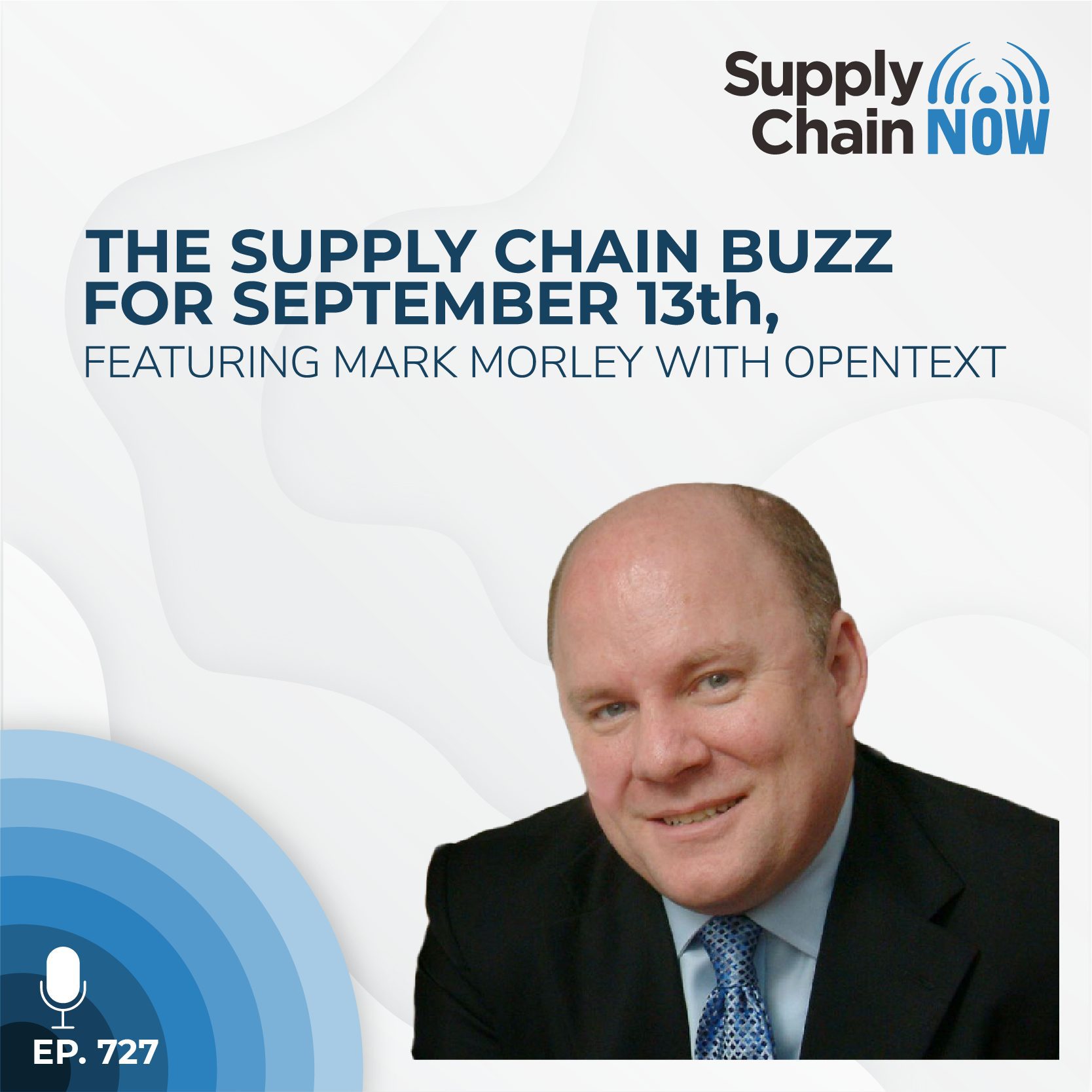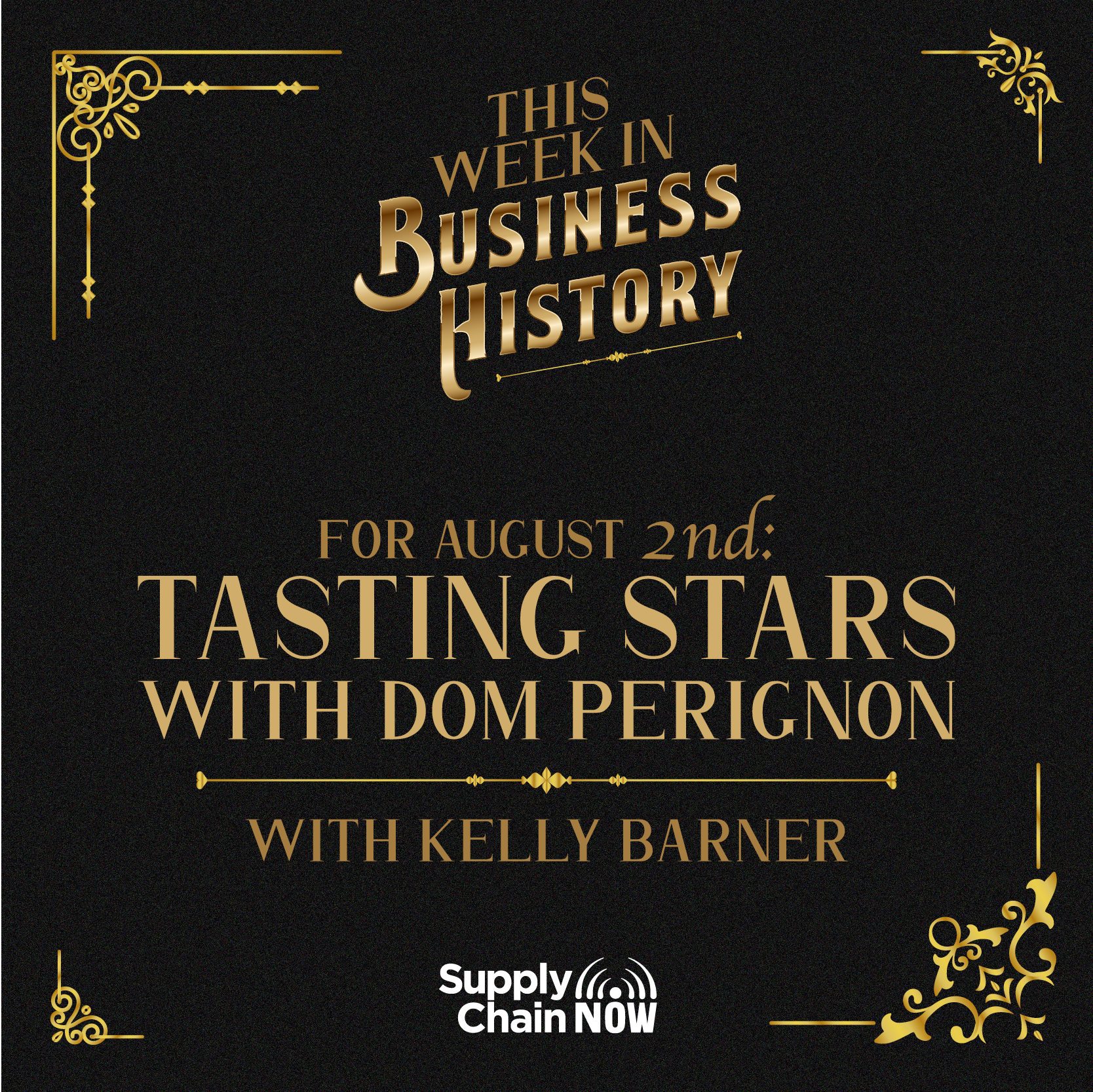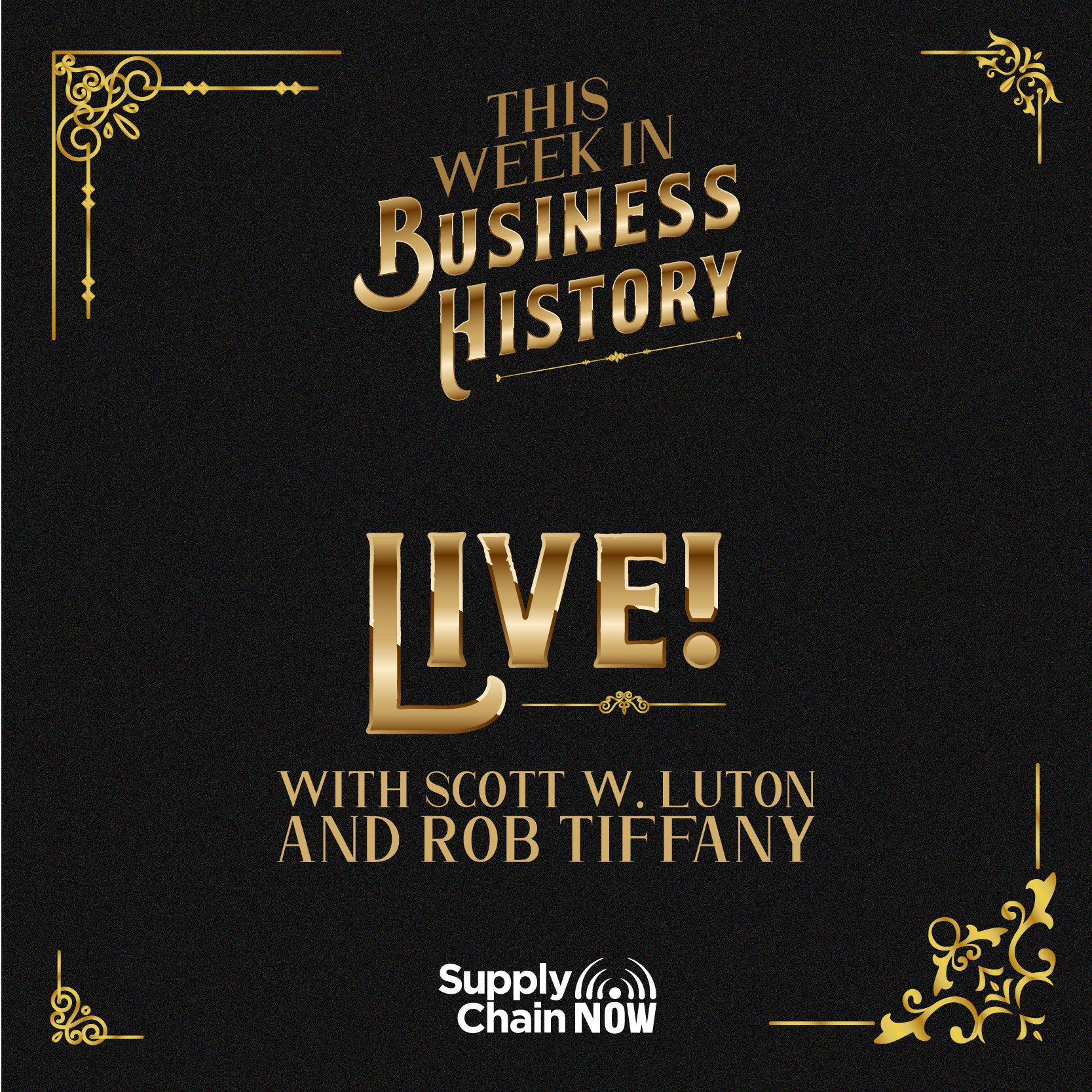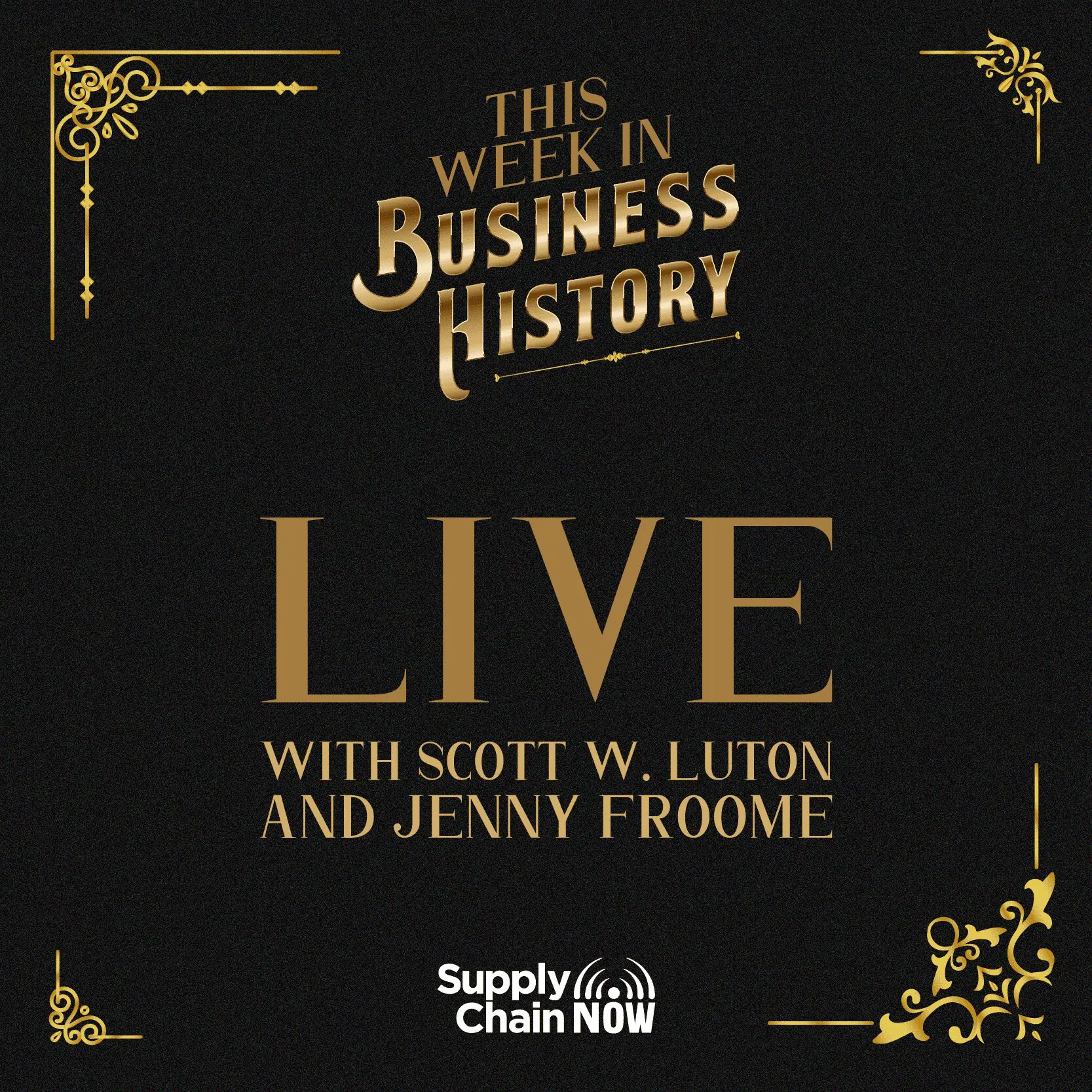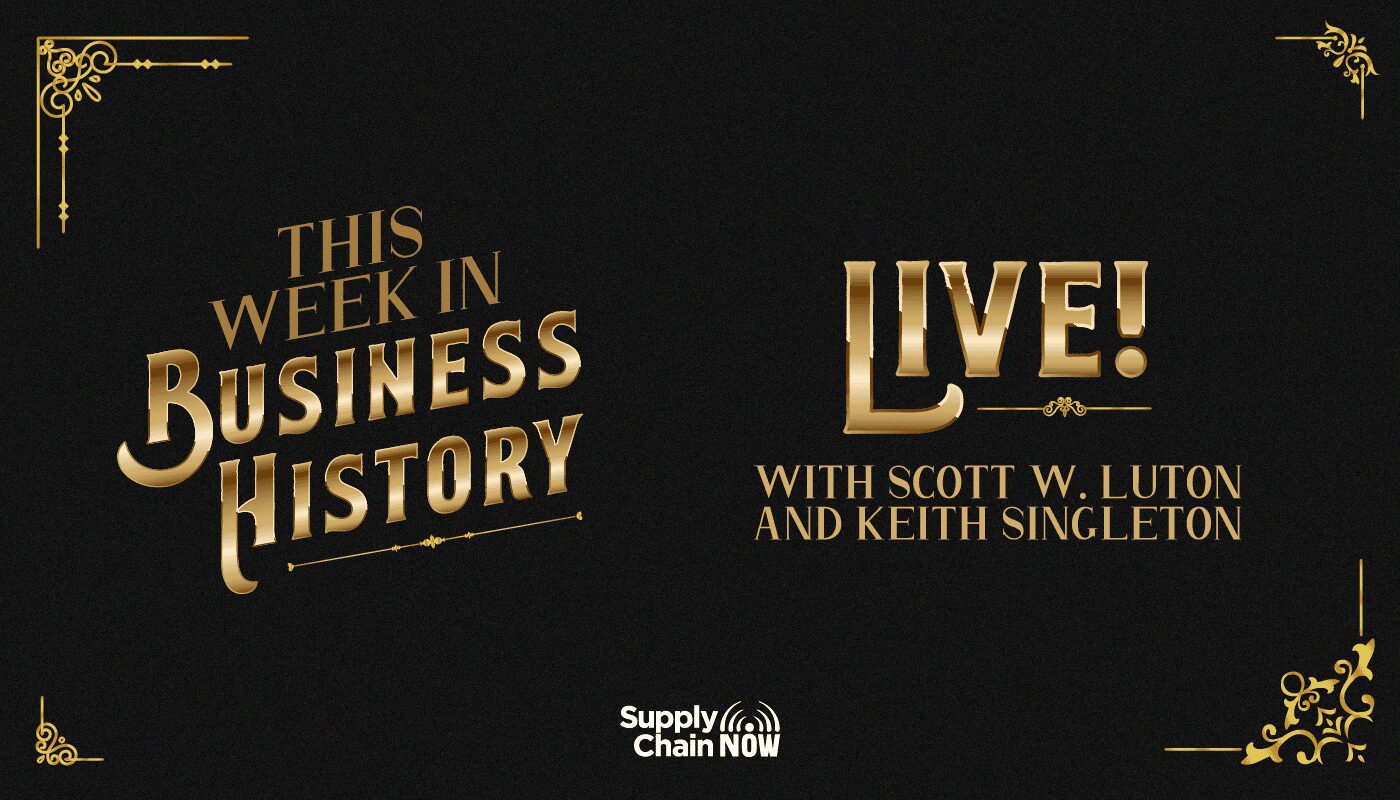
All animals are equal, but some animals are more equal than others.
- George Orwell, Animal Farm
Episode Summary
In this LIVE episode of This Week in Business History, Scott Luton and Keith Singleton connected the dots of history while taking a journey down memory lane, shining a light on some of the most significant leaders, companies, innovations – and even lessons learned – from the week of August 15-19th.
They shared stories about:
• The origin story of Hardee’s Restaurants, and how the controlling share of the company was lost (and won) in a poker game
• Which artist or band best exemplifies the ‘glory days’ of compact discs or CDs
• How the use of mail order catalogs helped Sears expand their customer base
• The lasting message (and timeless warning) of George Orwell’s ‘Animal Farm’
Episode Transcript
Intro/Outro (00:12):
Good morning, Scott Luton here with you on this edition of this week in business history. Welcome to today’s show on this program, which is part of the supply chain. Now family of programming. We take a look back at the upcoming week, and then we share some of the most relevant events and milestones from years past, of course, mostly business focused with a little dab global supply chain. And occasionally we might just throw in a good story outside of our primary realm. So I invite you to join me on this. Look back in history to identify some of the most significant leaders, companies, innovations, and perhaps lessons learned in our collective business journey. Now let’s dive in to this week in business history.
Scott Luton (01:13):
Good afternoon. Good evening. Wherever you are. Scott Luton and special guest Keith Singleton with you here on the latest edition of this week in business history. Keith, how you doing?
Keith Singleton (01:24):
I’m outstanding. Let’s go on Scott. It is so good to see ya.
Scott Luton (01:29):
You know, you have appeared throughout kind of various installments of the supply chain now history, and, and now this week in business history, and I’m so excited because while we have known each other for a long time, you are a fellow and hopefully I can, I can say this you’re a fellow history nerd. Like I am. It’s one of your passions in life. It is passion. And we get to talk history today for the next 30, 40 minutes, right?
Keith Singleton (01:54):
That that’s refreshing and, and, and good. I’ve been telling you, well,
Scott Luton (01:59):
folks, as I mentioned, this is our latest edition of a new thing.
Scott Luton (02:03):
We’re doing BI history live. It’s associated with our this week in business history podcast, which really focuses in many ways on lesser known stories of leaders and, and innovation at the intersection of you guessed it business and history. We drop a new episode every Tuesday, including the replays of our live sessions. And Keith, I don’t know if you’ve checked these out yet, but Kelly Barner is my co-host my esteem co-host she brings all the literary in the real writing chops and she drops a handcrafted masterpiece every other Tuesday. So y’all check that out. In fact, Keith, I think I’ve got a graphic of our latest. So this is the latest episode that we published today. One of Kelly’s episodes and it focuses on Julia child. Okay. I haven’t, I haven’t checked all of it out just yet. Clearly someone was when they said only a business woman, we all know how iconic and how successful and how impactful Julia child was far beyond just a business person and check out this quote with enough butter. Anything is good. Keith, I can get behind that. How about you?
Keith Singleton (03:16):
Butter is like sugar. He goes into everything.
Scott Luton (03:18):
Oh man. Don’t you know, so folks check that out. A new episode today published by my talented friend, Kelly Barner. And you can find that if you search up this week in business history, wherever you get your podcast from, you can check that out and subscribe. So you don’t miss a thing. But Keith, today with this newer aspect of our business history programming we’re live, we’re live across I think, five social channels right now. We welcome comments from folks as they wanna comment on the, the stories we’re gonna be talking about. We’ve got four interesting historical moments to share today. Is that right? Keith that’s right now I brought my four. Did you bring your four getting, getting <laugh> <laugh> we’ve got four good things and I bet we’re gonna be sharing some things that folks haven’t, you know, connected dots on.
Scott Luton (04:09):
I was surprised by some of the research we did. So with all of that said, Keith, we’re gonna dive right in. Let’s do it. You ready to go?
Keith Singleton (04:16):
I’m ready to go.
Scott Luton (04:17):
All right. So this first one, I’m gonna pull up this graphic for a second and folks can kind of check this out as I go through this number one on our list today, we’re talking tightened of fast food. Yeah. So some folks may not know Wilbur Hardy was born August 15th, 1918 in Martin county, North Carolina, Keith, after leaving the family farm with a dream of becoming a musician, I think we all have dreams of becoming musicians at some point or the other, right. Wilbur ended up serving in the us Navy. And Keith, I believe you, you were, you’re a Marine right. Marine veteran, right? Don’t.
Keith Singleton (04:54):
yep, absolutely. Right. Marine Corps.
Scott Luton (04:57):
See, we just kind of established some kindred spirits between you and, and this story on the front end that we’re gonna walk through.
Scott Luton (05:04):
So after world war II, Wilbur Hardy found himself working as a grill cook at a restaurant. So as we’re gonna about to find out that experience was critical because he’d plant a seed in his mind that he’d uncovered new passion. He wanted to become a restaurant tour. And I said that, right. And of course an entrepreneur. So by the late 1950s and early 1960s, Wilbur Hardy opened five different restaurants along with his wife, Catherine, including something called the silo in Greenville, North Carolina in the early 1960s, Wilbur heard about a restaurant, little known restaurant that had just opened in Greensburg, North Carolina. And it was generating a ton of buzz Keith, any guesses in terms of what restaurant you think that might be.
Keith Singleton (05:49):
guesses wise? I mean, we’ve all, we all know the Ray CRO story at McDonald’s.
Scott Luton (05:52):
Yes. It’s the gift that keeps on giving, uh, that Ray CROX story.
Scott Luton (05:57):
Mm-hmm <affirmative> so as Keith guessed it, Wilbur Hardy, Wilbur Hardy, I keep wanting to say Wilbur Marshall and, and switch it and say harder Wilber, no Wilbur Hardy decided to take a trip to that. McDonald’s on summit avenue in Greensboro and check it out for himself. He would park kind of in a, out of the way spot and just observe a lunch service at McDonald’s on a Sunday morning. So Keith, he was stunned. Wilbur Hardy was stunned that the business did about 170 bucks in an hour, which may not sound like a lot, but you got consider two things that was 19, mid 1960s dollars. But number two, the hamburgers Keith were 15 cents, right? That’s a bunch of burgers in an hour, right?
Keith Singleton (06:44):
Bunch of burgers. That’s a lot of volume. Yes,
Scott Luton (06:47):
that’s right. And efficiency and order and processes that’s right. Processes. And, and of course popularity.
Scott Luton (06:57):
So he, after he had that Eureka moment, less than 11 months later using what he learned from study McDonald’s and his restaurant experience Wilbur opened the first Hardee’s hamburgers in Greenville, North Carolina. Now he chose that first location cause it wasn’t far from east Carolina university and he kept a menu, simple focused on burgers, fries. Mm fried apple pies, right. He, Keith, we’re gonna get in trouble talking hamburgers and fried apple pies. Right. And shakes let’s make it worse. Milkshakes. So Wilbur Hardy also heavily marketed the char grills that he installed. And that was a differentiator in his, in his view, it would help bring more flavor to the Hardy’s burgers versus the McDonald’s competition, better tasting burgers. He thought, so the response Keith was overwhelming, and this, this may not be the, this image here I believe is the first one. If it’s not the first it’s one of the very first ones, right.
Scott Luton (08:05):
One of the first Hardee’s hamburgers. So I wanna pause just a second. So Keith, you, you grew up, I, I always wanna go to Oklahoma, although I know you’ve got roots in a couple of different places. Right. Have you, have you had Hardies around you, whatever journey cause really it’s predominant in the Southeast and the Midwest. I believe.
Keith Singleton (08:27):
it is. I mean, you know, it’s interesting if you do some research on this later hards would combine with named Carl’s Jr. Yes. And in Oklahoma city it had one of the first stores that had that all, it was one of the cities that often both Carl’s junior and Hardy. I didn’t know that. So I did grow up, going to Hardy. Okay. I did grow up going heart,
Scott Luton (08:48):
man. You start connecting the dots in it’s a really small world and, and, and, and blessed be the ties that bind always comes to my mind a phrased us.
Scott Luton (08:56):
So going back to this, the hardest story, you know, before some of the expansion that Keith just alluded to so immediately, right, right. Outta the gate, especially having already had restaurant experience and, and having all the success of the movement that was at the time, you know, this fast food, quick service was, is a new notion. Right. Right. So Wilbur immediately was thinking about expanding. And about that time he was in introduced, uh, luckily or maybe unluckily depends on how you look at it to a couple of partners, Leonard, Leonard raws and Jim Gardner. Yes. So what happened next after the partnership was formed? That’s where the story varies a little bit based on who you talk to, what is an absolute fact to what you were alluding to that the, the partnership soured very quickly and Wilbur Hardy lost controlling interest and the partnership that governed the restaurant chain that bore his name.
Scott Luton (09:55):
Now, Keith, I bet your research turned up the same thing. Some say it was a bad poker game and he waged his shares in the poker game, man. Right? That’s bad news. Others say that it was a Hasley signed and unread legal document, late night session with lots of adult beverages involved. And there were lots of signing of contracts that Wilbur did not read, but regardless, just a couple of years after the partnership was formed and then went sour, Hardy would be bought out by garden gardener. And raws for there’s two figures. I’ve seen $20,000 or $37,000 two figures. I came across. I’ll pause there for a minute. Keith and I don’t know about you, but I don’t sign legal documents playing cards or after drinking any adult beverages. Huh?
Keith Singleton (10:46):
Any, any beverages, but you know, the interesting thing on this is is that, uh, what I liked is he, in a later interview, he admitted that he, he just did something stupid.
Keith Singleton (10:57):
Yes. Uh, real remorseful about it. It’s great to hear that he later went on and made money. Yes. That’s the positive aspect of it. But you know, I guess this fact in history is, is that they actually took the, they took this thing national and made into a franchise in August of, of 1963, hence you know, celebrating business month here in August. So right. Interesting. You hear more, you hear plenty of success stories that are in this same vein, unfortunate, but it happens. They’ve made lots of money with heart or doing here.
Scott Luton (11:32):
Well, you know, I like a couple things you acknowledge there cause he did just own up to it later in life. Right. And there also is a, a, a happy conclusion to the story and I’ll drop this so I can share a couple of these comments. I’ll get to that in just a second.
Scott Luton (11:50):
Let’s see here, Amanda loved going back to Julia child. So she’s a big fan. We’re both big fans of Julia child. There’s a great new movie or newer movie that came out that we’ve enjoyed and, and series too, I believe. And she says, her dad loves Hardy’s biscuits. Yes. That’s what that and the Frisco breakfast sandwich, if I’m keeping it real around here, Keith. Yeah. I, I can’t do it anymore, but in college I could eat three or four of those at a setting. Again, we can’t do it anymore. As much as I would like to. Have you ever had this Frisco breakfast sandwich.
Scott Luton (12:23):
I’ve had both of, you know, the B just kind of took off in the eighties, sick. He branded itself with that breakfast biscuit. Yes.
Scott Luton (12:32):
And in the nineties and two thousands, they got in some interesting creative advertising. Yes they did.
Scott Luton (12:39):
I’ll I’ll save the footage for a later time, but right. Katherine gonna need a burger for dinner. I, I think all four of us and, and by the way, big tip of the hat to Katherine and Amanda for helping make the production happen today. So Keith let’s get back to, as we wrap up this first story, the better side of how this thing turned out. So as Keith mentioned, you know, 18 or over 1800 locations that exist today across the Southeastern Midwestern us as Hardy’s and, and Carl Jr. I believe hundreds of millions of revenue, just under a billion dollars in revenue in 2021. You know, the names sake of the Hardee’s restaurant would be outta the business based on that early split, but right. He would not be deterred well Beharie would not be deterred. He and his wife, Catherine made one heck of a team they’d open a variety of very successful restaurant ventures.
Scott Luton (13:28):
I think one was called the little mint that got it to be, I think, 50 different locations. Right. And they largely lived the good life he passed away, unfortunately, but after a wife, a life well lived on June 20th, 2008. So all told, I think I saw one other comment out there. Keith, I think one of his daughters said that he didn’t like to be told and I’m paraphrasing. He didn’t like to be told anything. Right. So once he lost that controlling interest, you know, the dial was kind of a set and number two, he really was passionate about starting things, right. He wasn’t as much of like of a maintainer. That’s not where his juices were, you know, got excited. It was more on the starting and founding a new ideas and stuff like that. So I can get that Keith, but you’re, before we talk food, one more time, your final thoughts on the story of one Wilbur Hardy,
Keith Singleton (14:24):
you know, the biggest thing that comes to mind is resilience and the, the ability to put a mistake beside, behind you.
Keith Singleton (14:31):
And he did that. He did that really successfully and it’s most business people have to learn how to do. Sometimes you have to learn how to have a short memory. You gotta just pass mistakes.
Scott Luton (14:42):
You’re so right. Kinda like the sports analogy, right? CLO baseball closers. Right. If they blow a save the night before they gotta, they gotta block that out and forget it and move on, they can’t let it impact their, you know, appearance the next day. Right. Next game. Right. Right. All right. So now for the billion dollar question, Keith, where do you go if you had, if, if you had a private jet or if it was something in your backyard or local community, where is your number one spot for getting a good burger? <laugh>.
Keith Singleton (15:16):
when I, in Oklahoma, I go to water burgers. Okay. All right. Is that, is that what that’s what I do. I love water burgers, but here in Georgia is Wendy’s for me. Okay.
Scott Luton (15:27):
Wendy’s makes a good burger and we could do, we could do, I’ll have to do a future episode on Dave Thomas, who was quite the personality. What I have read about is the personality you saw on the TV commercials, right? Wasn’t the whole, whole Sheba. There was a lot more to Dave Thomas, huh? Right, right. All right. So we’re gonna have to leave the topic of burgers because we are getting way too hungry. Looks like, Hey, Sheena also is a big fan of water burger in Oklahoma city ever been to, you know, Sheena, perhaps.
Keith Singleton (16:04):
daughter. Oh really? <laugh> all right.
Scott Luton (16:06):
Well, Sheena, Hey, as I was saying, blessed, be the ties at bond. We’re all members of the Keith Singleton fan club around here. So you didn’t know, you were, you may not have known you’re the daughter of a legend, so great to see you Ash Sheena.
Scott Luton (16:20):
And I’m I’m, I’ve never had a water burger, Keith, what makes it so good?
Keith Singleton (16:24):
You know, they’re, they’re handmade. You can, you can make em to water and it’s just, it’s just the taste.
Scott Luton (16:29):
Okay. All right. You, if we there’s one here in, in, in, in the Atlanta area, I have to take you to it. Okay. Let’s Hey, we gotta, I gotta hold you to that. <laugh> so, all right. Let’s shift gears. We gotta get away from talking food for a minute. Getting too hungry. I wanna talk music, Keith, and we’re gonna take it back old school. And I have to say this because I’m old full who’s. So cool. Any, any, any, any idea what song that’s from?
Keith Singleton (16:58):
I have no idea.
Scott Luton (16:59):
Oh gosh. That is, that is a tag team who there it is. And you know, they made a comeback. That song was really popular when I was a senior in high school.
Scott Luton (17:11):
Okay. And I love that commercial. They have come out with recently. I think it’s for one of the big insurance companies. Okay. And it is so funny, but anyway, that’s enough enough, my cheesy singing. Let’s take it all the way back to the compact disc. Yes. Believe it or not. CD. Goodness. I remembered when this became a thing on August 17th, 1982. Yes. The world’s first commercial music compact disc AK to CD was released. It was an album by the iconic band Abba, entitled to visitors. Now, some folks would argue that it was a Billy Joel CD. It kind of part depends on how you define it. But Hey, according to my sources, ABA was the world’s first co commercial music CD compact disc technology was developed collaboratively by the companies, Phillips and Sony. There’s a big story there. We can’t get into here today. Right. As you know, Keith, I bet you had a collection.
Scott Luton (18:09):
I know I had a collection. CDs would become the dominant format format for all things, especially music throughout the late eighties, nineties, and into the new millennium. And we all know what happened in two thousands. Digital technology would start to take over, you know, we had iPods come along where you could store, you know, thousands of songs and a small device and no need to, you know, join BMG music club and get 12 CDs for a penny. Remember those days.
Keith Singleton (18:35):
absolutely did.
Scott Luton (18:36):
Um, but all that eight away, eight away, eight away at, uh, both record and, and compact discs. But one final thing, I’m get your comment here. Keith, much like vinyl records, many industry analysts say that CDs, get this are making a comeback. CD sales grew in 2021 for the first time in 20 years. So Keith tell us where do CDs stand? Where do they sit with you? Do you remember those glory days where we all had the, the, uh, the catalog of CDs for house parties and whatnot.
Keith Singleton (19:11):
I still have my catalog. So it was really interesting to hear about a being the first group that released on CDs. I do remember that timeframe and, and, and this particular artist was a Sony person that was Michael Jackson and his, his album off the wall. It just really took off on CDs on that form.
Scott Luton (19:34):
So I’ve got a follow up question that we’re gonna, we’re gonna take it back and get the scoop on you and perhaps on me, but really quick, Amanda, Amanda’s telling herself she still has a huge book of CDs that she kept in her car in high school. And you had to hide them in the backseat when you got outta your car. So they wouldn’t get stolen.
Scott Luton (19:51):
<laugh> yeah, that was, that was, you know, some of my bigger catalogs, you know, I wanna say it held probably 60 CDs and, and gosh, for a while there you get, it’d be 15, 20 bucks for a CD. So that was a, that was a bad day to get your CDs stolen. Mm-hmm <affirmative> and she also confesses, she got a lot of CDs from BMG. I got my first collection notice Keith in my entire life from BMG because yes,
Keith Singleton (20:21):
the scam, of course, yes. <laugh>.
Scott Luton (20:22):
they, they give you 12 CDs for a penny, but what they didn’t say, and the ultra fine print is that there were lots of shipping and handling charges. And then you had to buy certain amounts per year. And if you didn’t, if you didn’t pick one, they were gonna invoice you. And you know, so anyway, <laugh>, I’m glad I settled with the BMG mafia, the team, but let’s get to the nitty gritty.
Scott Luton (20:51):
Your first, do you remember your first ever CD? Was it off the wall by Michael? It was,
Keith Singleton (20:57):
mine was off the wall. That was your first ever. Okay. That was my first ever.
Scott Luton (21:01):
Excellent. Historically one of the do most dominant albums all time. So mine was Candyman and I meant to grab a graphic. So get this, my beloved mom, which she may be tuned in today, Alia Luton from Aiken, South Carolina, uh, when, whatever year that was, I got, I got my first CD player. You remember it was very simple device, but it was like 500 bucks. Right. That was, that was, that was basically my Christmas one year. Right, right. And so of course she didn’t wanna just give me a CD player. She wanted to give me a couple CDs that, you know, so I could use it on, you know, when we opened up gifts, right.
Scott Luton (21:39):
So she went to Camelo or disc jock, whatever those mall stores were and said, Hey, what’s the hottest CD and, and act right now. So she pointed the, the, the assistant, the retail agent pointed to Candyman, which I don’t, I don’t think you’ve ever heard. He, I think he was a one record and done rap artist. He’s he has been sampled a lot, quite a bit. I’m gonna spare you and not try to sing a couple sucks, but <laugh> go ahead and give us go, come on. Oh, no, but I hear a Amanda laughing around the corner cause she knows how bad the first time I tried to drop a line or two, but Candyman picked out by my mom was my first CD. Okay. And we wore that thing out, whatever the winner and, uh, the winner in summer of, I don’t know, 1992 or something.
Scott Luton (22:36):
So we’ll see. Well, I, I have to go find the original somewhere in one of those big catalogs. Okay. Uh, Catherine would keep mix taped CDs in her car for all long drives. Did you ever make those mix tapes.
Keith Singleton (22:47):
made the mix?
Scott Luton (22:48):
Okay. All right. Amanda, lots of people got their first collection notice from mg. Thank you for bailing me out. Amanda makes me feel a little better. Her first CD was the cranberries. Do you remember that group? Yeah. Uh, <laugh> linger. Linger was I think their first hit and it was, it was nice and slow and kind of flowed. And then a lot of the other stuff that I released was very upbeat. Right. So great, great group cranberries. Okay. So we have talked burgers, we’ve talked about the Wilber Hardy story and, and she, Hey, I’m looking at you. Hey, what was your first CD or your first album or your first maybe song get downloaded.
Scott Luton (23:29):
I’d love to get the scoop on you. But we talked burgers and Wilber Hardy. We have taught compact discs, including some of my skeletons from the closet. Some of the CDs we’ll probably never see again. Let’s before we move on, we got two more stories. We’re gonna get through mill order catalogs and a great book that Keith and I both read as a kid, but the shippers group, Keith, you know, I’ve known you for, uh, quite some time going back, uh, a couple decades. You’ve always done some big things in supply chain. I’ve loved our practitioner conversations through those years. So tell us what the shippers group does.
Keith Singleton (24:08):
I mean, we’re at three PO mainly in, in warehousing and transportation currently where I work at, I work in Jonesboro out of the Jonesboro facility and I am actually doing work for free to lake. So repackaging and, and, and sending product both to the, to the, uh, to the manufacturing side and to on customers. So, okay. That is what I am doing right now.
Scott Luton (24:32):
Currently big name, big brand customer, making it happen as all, but Keith ever since our first conversation, you’ve been making it happen. So we’re gonna have to catch up in person. It’s been a long time ago. We were talking about pre show. We were talking about those. Um, we would need a cheesecake factory in the criminal area of Atlanta. For some of those conversations. That area looks a lot different now, right? Keith,
Keith Singleton (24:55):
a whole lot different.
Scott Luton (24:57):
<laugh> big fans of the shippers group. I’ve known some of your colleagues there over the years. Great group. And appreciate you carving some time out to talk history with a fellow history nerd here today. All right. So speaking of supply chain and shipping stuff as a perfect segue, unplanned segue Keith for our next, our third eye of the day.
Scott Luton (25:22):
So what did folks do before we had Amazon? Well, we order from these things.
Keith Singleton (25:29):
Yes, we did.
Scott Luton (25:30):
look at these things. So these are, these are really old. We order from mail order catalogs. So now while most folks may think of Sears, when it comes to the big old catalogs, the first company to publish one might surprise you. Montgomery reward publish the first mail order catalog on August 18th, 1872, get this. It was a small group when they launched it. And I think I read earlier, there’s only a handful of employees when they first launched this. Like I think it was like a one pager, right in 1872 mm-hmm <affirmative>, but by 1904, they had over 3 million CU 3 million customers on the Montgomery ward mailing list. Wow. Now, even though Keith, this also surprised me today. I didn’t know this today. I was today years old as all meme goes.
Scott Luton (26:17):
When I learned this, even though this Sears catalog discontinued 1993, which I did know you can still request and get a Montgomery ward catalog. I was on their site earlier today. So that, that surprised me a little bit. So here an image before we have Keith comment, the one on the left, you can, I, I got the date cut off, but that’s spring and summer 1875. So that’s about three years after they, they launched these things. And one on the right is more from, I think, 1895. So you’ll see kind of how it, it evolved a bit there, but Keith mail order catalogs before, long before it was Amazon, that’s how, especially folks in the rural parts of the world got their stuff. Right?
Keith Singleton (26:58):
That is, I mean, that’s how that’s, that’s how many of the people that lived in some of the front, what was called being the frontier states. That’s how they shopped and interesting to me. I would’ve thought that the companies like the Montgomery rewards and Sears, we may have had this conversation before Scott would’ve been successful. I know the, the Amazon concept really came from those forefathers there of just co soliciting, collecting information and driving the marketing aspect of the business through information, you know, sharing.
Scott Luton (27:33):
Yep. So, you know, I was reading earlier that, so, so to your point there, the big thrust there was getting outside the big cities where folks had more options and supplies and stuff, more variety and, and really targeting the rural population. Right? Right. Well, the rural stores, general stores and, and, and like, they hated to see these male catalogs pop up. Cause of course it was new competition. So they, they would host burning parties of these catalogs. You know, <laugh> if people prizes and they brought em, so, you know, what’s old is new.
Scott Luton (28:11):
Again, the competition hasn’t gotten any, the competition is just as fierce. It’s just, it looks different. Right? One last note, speaking of competition, we were just talking yesterday. I think it was with Greg white and Kevin L. Jackson, about how Amazon and Walmart, right. The next chapter of their ongoing competition. Right. You know, fight for market share. It is fascinating. Keith, is it? It’s,
Keith Singleton (28:36):
it’s, it’s fascinating. It is. It’s very fascinating. I mean, but you know, today’s current co technology makes it a, it makes it possible to control the economies. The scale is a whole lot better. Yep. I, which helps manage inventories. It’s a lot more real time, but it still, it still gets back to the nuts in bolts of the business. What I think Montgomery rewards really massive was managing the supply chain, get things there cheaper, right. Have carry over cost. Things like that.
Scott Luton (29:03):
That’s such a great point. Um, while many consumers and folks that aren’t, you know, in global supply chain, as practitioners or professionals or whatever, you know, many folks are new, you know, they’ve, they’ve really been introduced in, in good ways and bad ways over the last, you know, couple years, which is really part of the silver lining of this, this challenging time we’ve gone through, but supply chain’s always made it happen. I, and you think about when the whole value prop behind the, the mail order catalogs was it was coming to you at the price you commit, you know, the price you expect, you know? Right. And, and the convenience there. And, and, you know, even a house as we point out many, many times, right. Sears would ship an entire house to you back in the, in the, in the earliest days of, of the mail order catalogs.
Scott Luton (29:55):
So if there’s anything that has been consistent, it is folks in supply chain making it happen. So a lot of good stuff there, Keith, all right. So we’re coming down a home stretch. Keith, we’ve got one more item we wanna share with folks. And I think a, a book that you and I both have enjoyed, I’m gonna pop this up here on the screen, and this is animal farm by George Orwell. Some of our listeners may, may be familiar with this book. This was published for the first time that the initial publishing was on August 17th, 1945 in 45. Correct. Now we were talking in the pre-show about some of the, you know, some of the history of that time and what really fueled George Orwell to write the book. And I I’ll challenge people to go, you know, you can go Google that and, and dive in deep.
Scott Luton (30:44):
But this was one of my favorite books as a kid. I wanna say, we read this in the sixth grade or seventh grade, in a nutshell, if, if folks haven’t read it or hadn’t seen the two movies have come out, it tells a story of a farm where all the animals rebelled, right. They drove off the farmers off the, the, the, the property. Yes, they, and then the animals, Keith, as we know, had to establish essentially a government right. Rule order. But that’s where it gets interesting because eventually as the graphic to the right says, because they wrote all the rules on the side of the barn. And, and as the book speaks to the rules continued to evolve because eventually classes were created amongst the farm animals. And because of that and a lot more I’ll I’ll save, I won’t give up the whole story of it.
Scott Luton (31:32):
The farm would become worse, soft than it was even when it was being run by the farmer. It, it was a, a bit of a disaster. So Keith, I know you’ve read animal farm. What’s your thoughts on this book, this impactful book.
Keith Singleton (31:47):
It’s an interesting Pardy on just what happened to the Soviet union even. And it is really prophetic as to it predicted how the Soviet union would probably evolve to the last point where the, some animals became more equal than others. And then the very last portion of the book, which is so prophetic is you couldn’t tell the humans from the pigs <laugh> by the end of the book. So, oh, many of the capitalists that the humans represented, the, the pigs became just even more capitalistic as what we see with some of the Russian oligarchs now.
Scott Luton (32:23):
So, so right. You’re so right. And to our, maybe to our, any of our listeners that are listening to the audio replay, you won’t see the graphic, the rule that we have up there, which is wasn’t one of the first rules after the rebellion and AF and you know, right at the moment where all the animals were in it, in the trenches together, you know, right. Everybody was on the same page as Keith alluded to it devolved. And one of the rules up here that, that the ruling class on the farm added to the list is all animals are equal, but some animals are more equal than others. So that stuck with us for so long. So if you hadn’t read animal farm, it was written back in 1945. And as Keith mentioned, not only does it, is it applicable to what we’ve seen in the, so the old silver union, but in so many different movements around the world where, you know, people get what they want.
Scott Luton (33:15):
And then all of a sudden folks find ways to manipulate and, and, and accumulate power and other things. So animal farm released on, I think that was what, August 17th, 1945. Okay. So Keith, I appreciate you sitting in for these four stories from burgers, the CDs, a little Abba, little Candyman, little Michael Jackson, absolutely. To mail order catalogs, some modern day supply chain lessons and respect for the profession to even international politics and, and the human journey with animal farm. A lot of good stuff. What, um, so I know how to reach you. I know you’re, you’re active on LinkedIn and, and, and some social, but is that the best place? If folks wanna compare notes with you and, and what you do in supply chain and, or get your take on all things history, would you recommend if folks reach out via LinkedIn?
Keith Singleton (34:14):
Sure. Reach out to me on LinkedIn. I’m, I’m fairly easy to define. And then for those that know me, they can always reach out to me by email or just call me.
Scott Luton (34:24):
wonderful. And if you have any problems, y’all come through us. But Keith is someone that needs to be in your network. You’ll be better off for it. And Keith, we gotta, we gotta talk more history. I appreciate you weighing in this afternoon and I’m gonna hold you to getting that water burger I’m persons <laugh>.
Keith Singleton (34:43):
sometimes I’m, I’ll get you there. I’m gonna get you there. Water burger is better than Wendy’s. I promise you. Oh, love it all Patrick. Mahome <laugh>.
Scott Luton (34:52):
so, as we wrap here today, I want to thank my dear friend, Keith Singleton. I’ve probably known him for, for 20 years in Atlanta. Mm-hmm <affirmative> uh, appreciate what he does wanna thank of course, our production team. Big. Thanks, Amanda, and Catherine and others that have been here helping to make production happen today.
Scott Luton (35:09):
Thanks for all of our listeners. Hey, y’all be sure to check out the episode, the previous episode, Kelly Barner released on Julia child. You won’t be disappointed. Be sure to find this weekend, weekend business history, wherever you your podcast. Again, we drop a new episode every Tuesday and, uh, most importantly on behalf, our entire team, Scott Luton, challenging all of our team and all of our listeners to be like, Keith, Hey, do good. Get forward. Be the change that’s needed. And we’ll see you next time. Right back here at this week in business history. Thanks here. Bye. Take care. Bye.
Featured Guests

Keith Singleton is a Management Leader who has over 20+ years of experience leading people and organizations. He earned his Masters at Central Michigan University with a concentration in Leadership and Executive Administration. Keith started his professional career in the Marine Corps working in Distribution and Logistics. He has a variety of professional experiences ranging from Sales, Business Operations and Supply Chain Management. He currently works at Gates Corporation. Keith has been married for 26 years to Melissa Conyers, has three children and two grandchildren. His hobbies range from running to coaching AAU Basketball with the Atlanta Celtics. He has memberships in both APICS and CSMP where he has served on boards for both organizations. He is also a member of the Alpha Phi Alpha Fraternity. Keith’s ongoing mission is to leave the world better than the way he inherited it. His philosophy that drives his daily activities reflects his life endeavor: “…what would you do if you knew you could not fail.”
